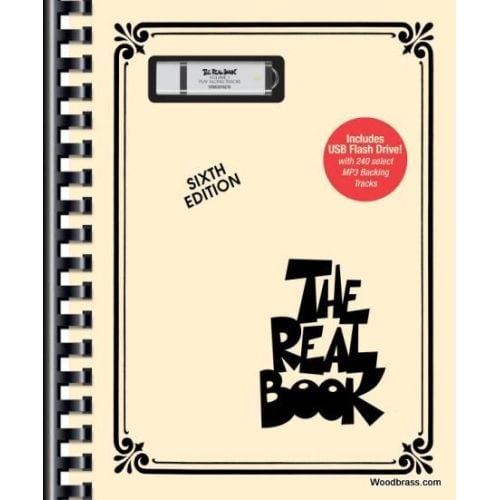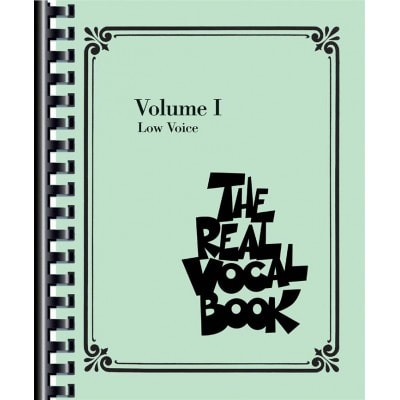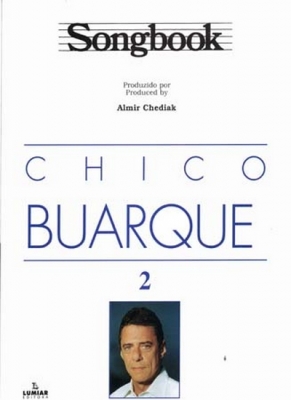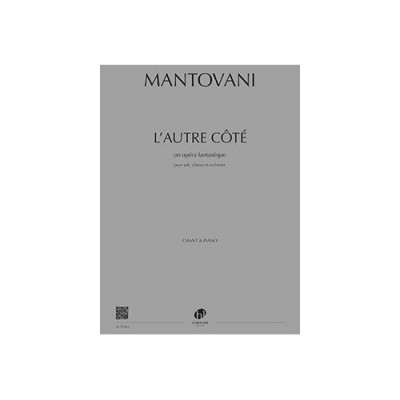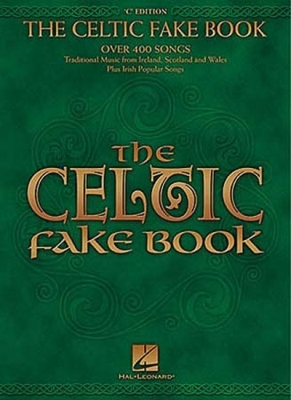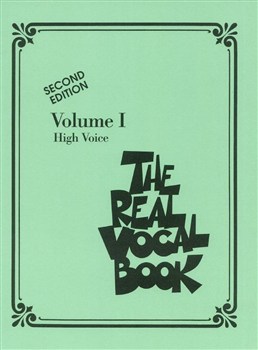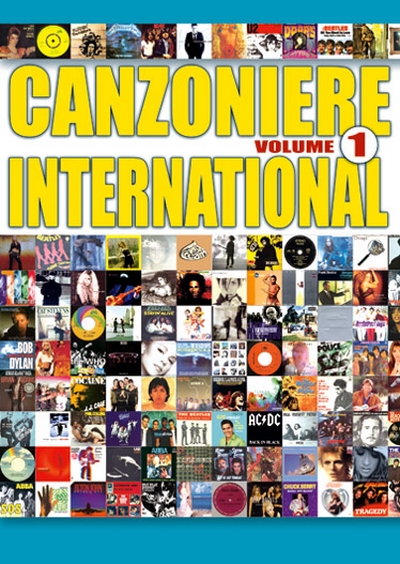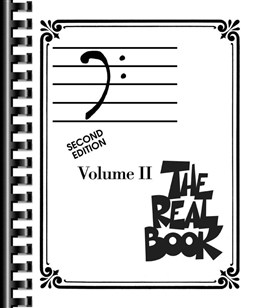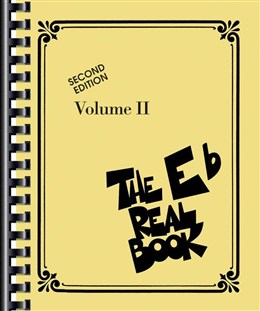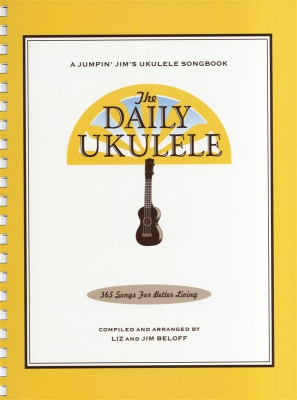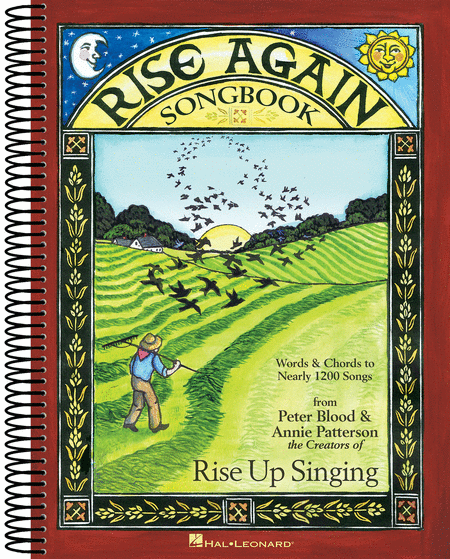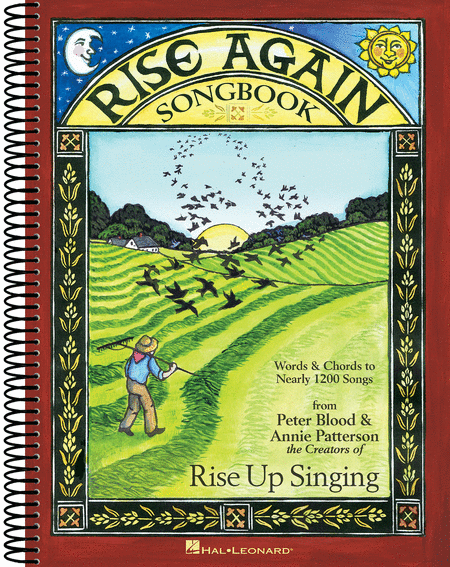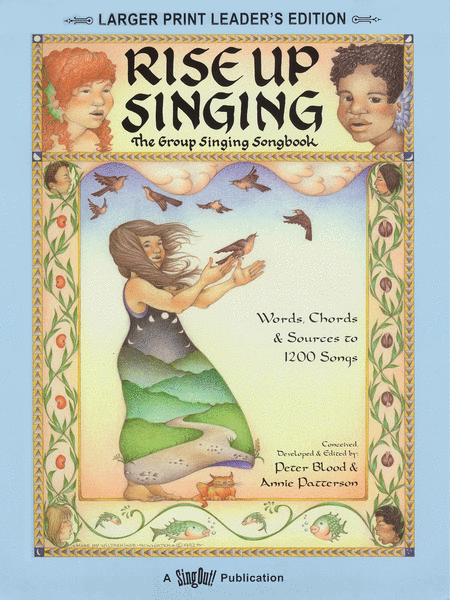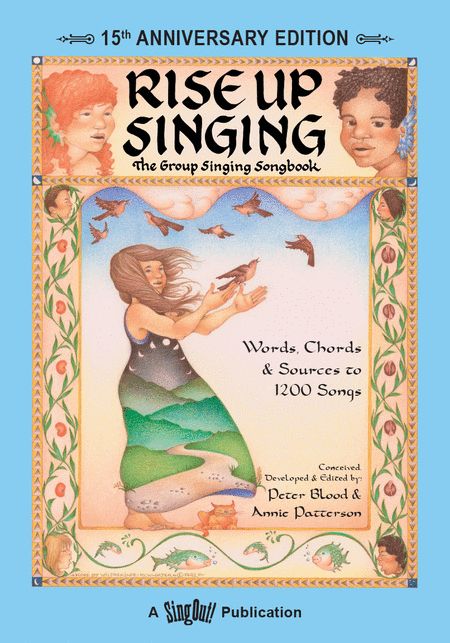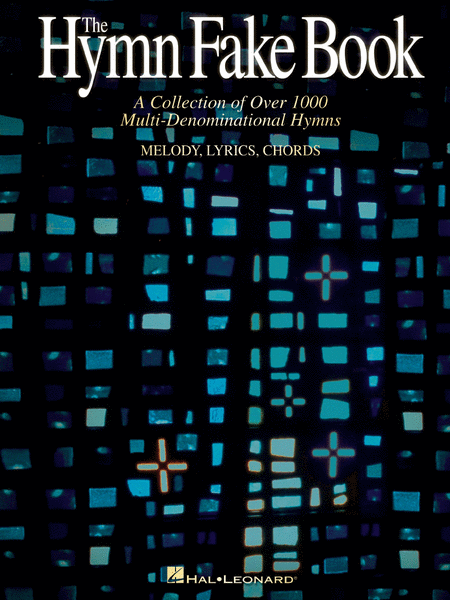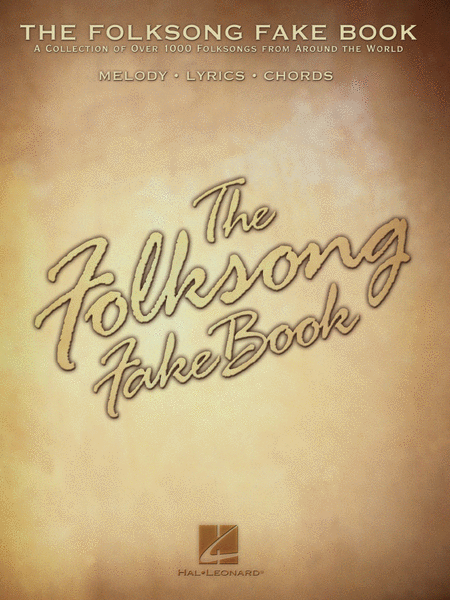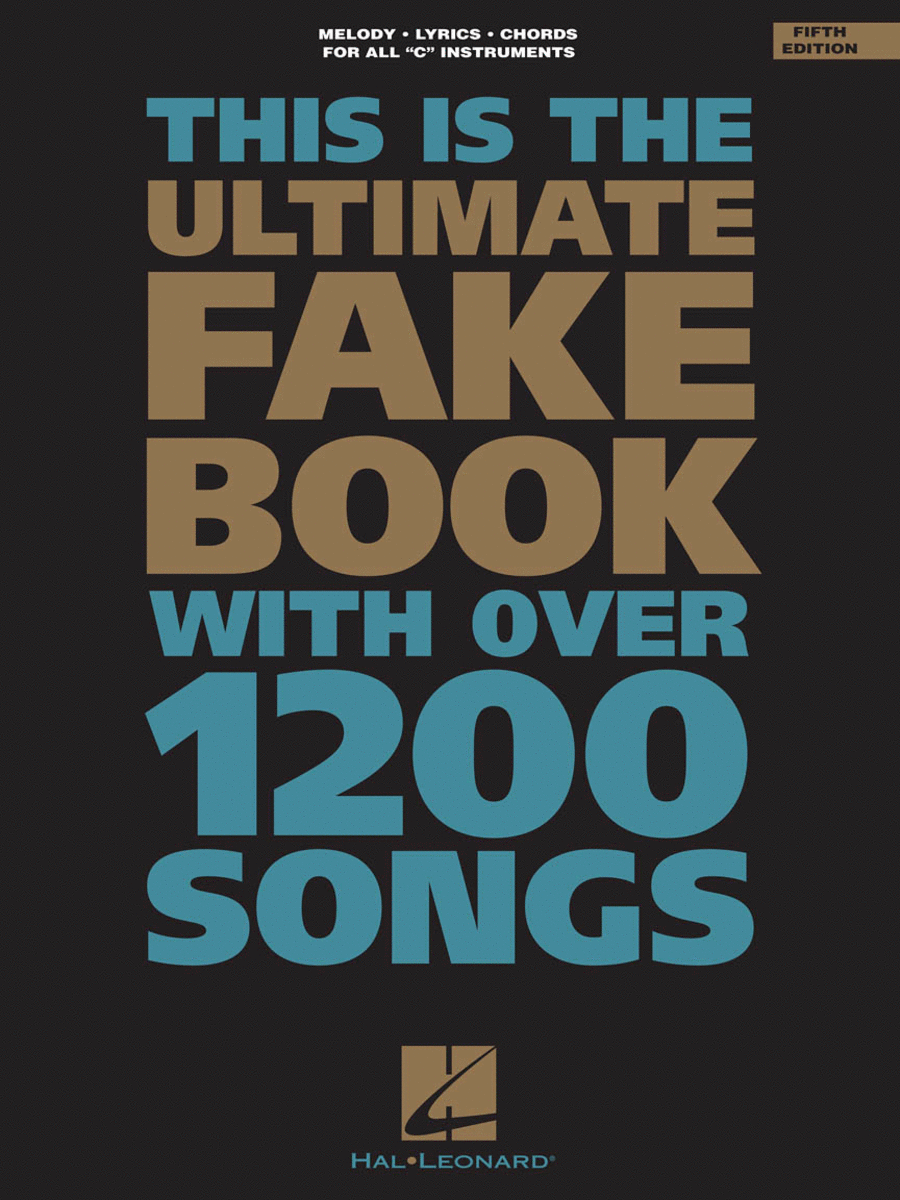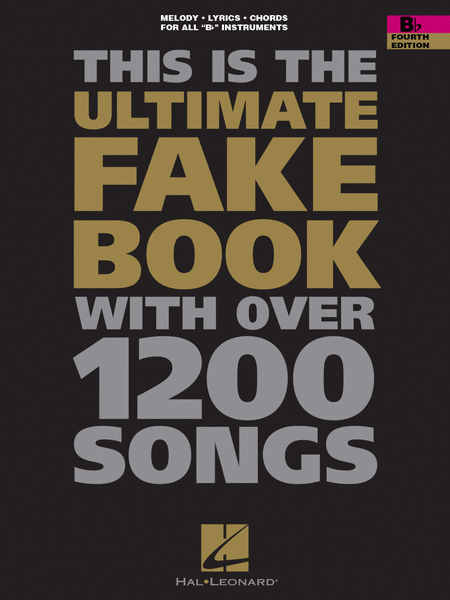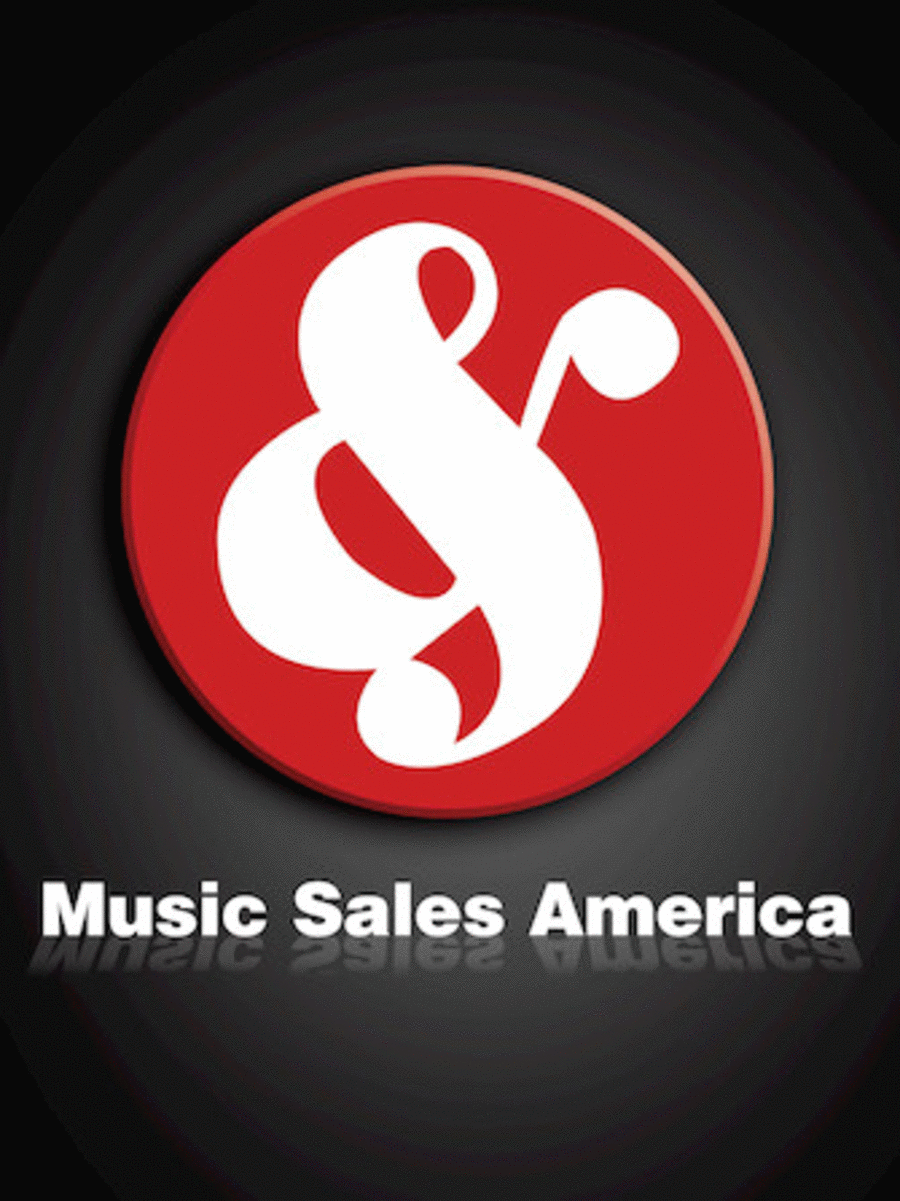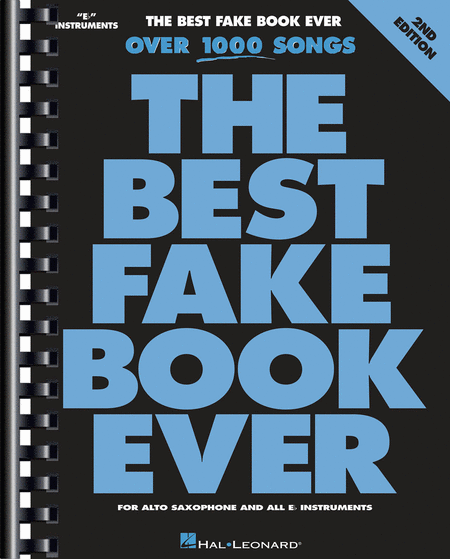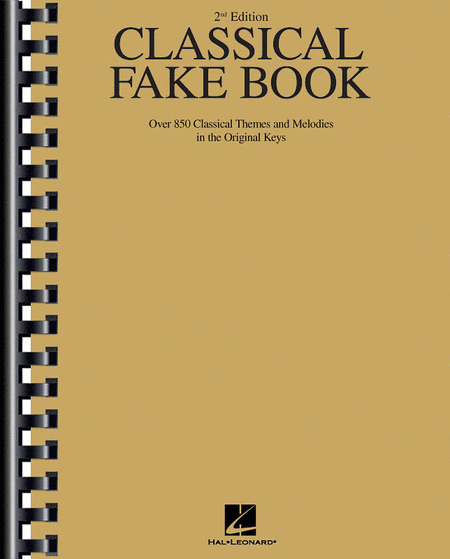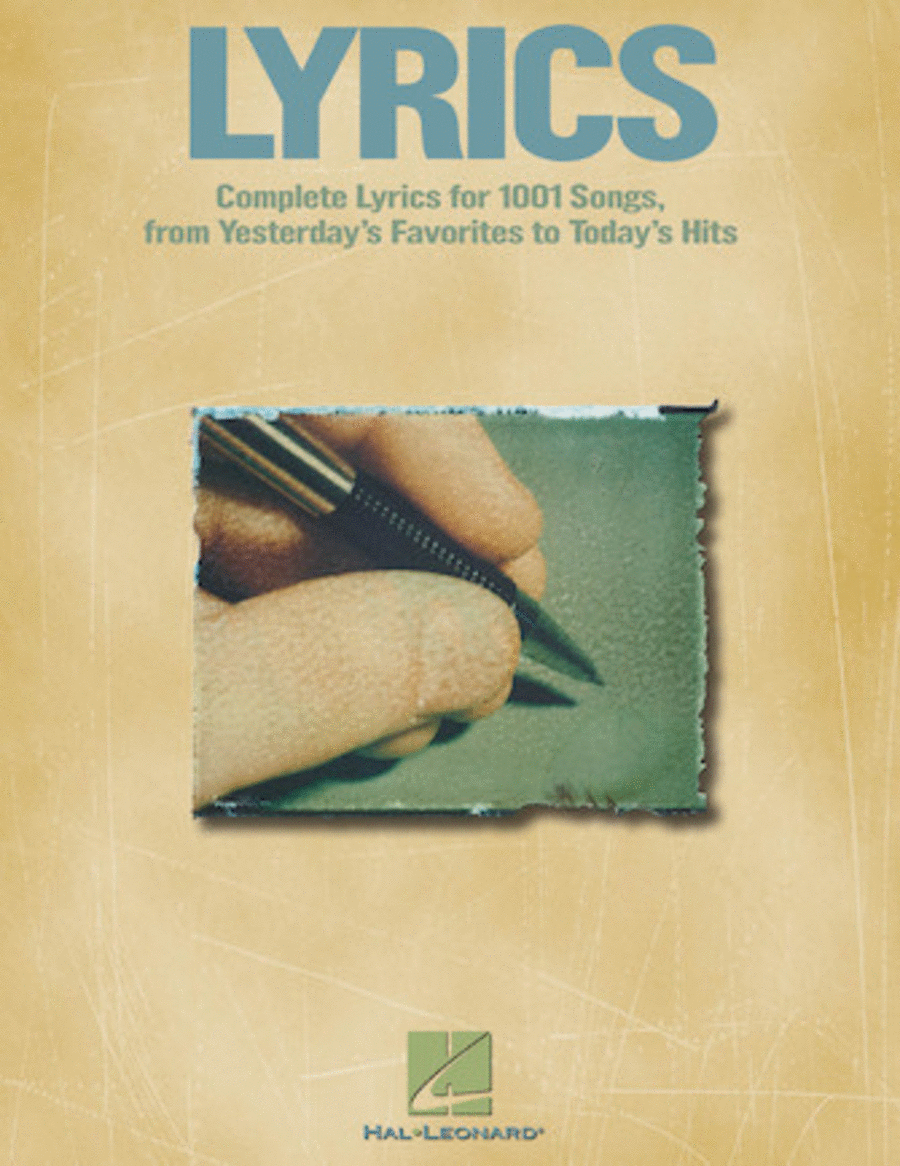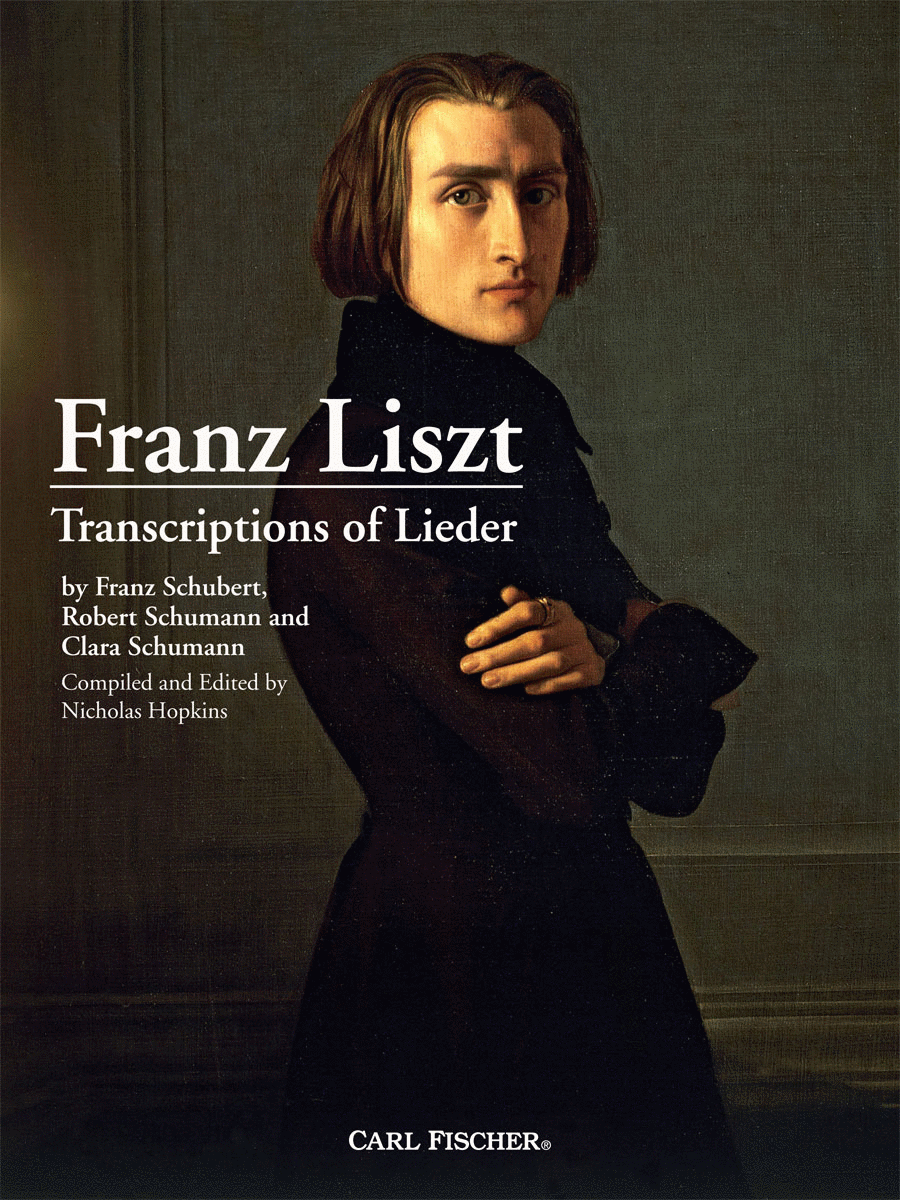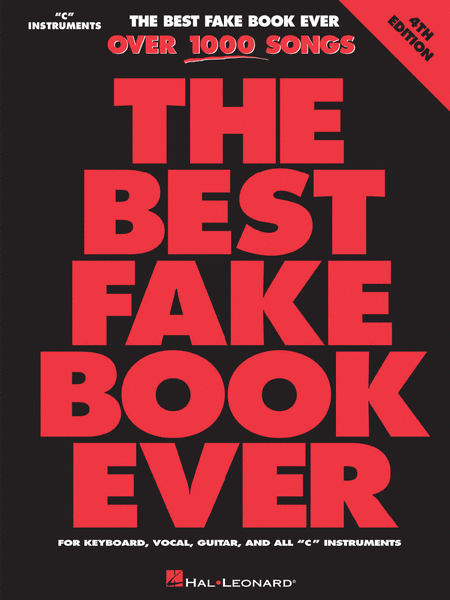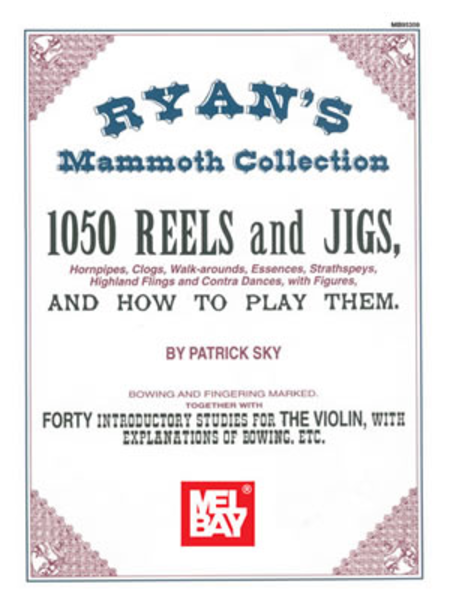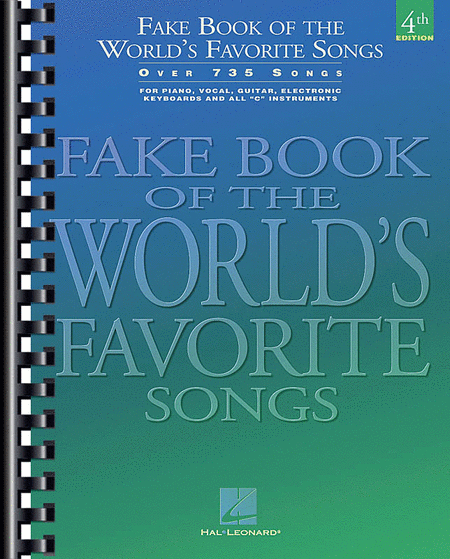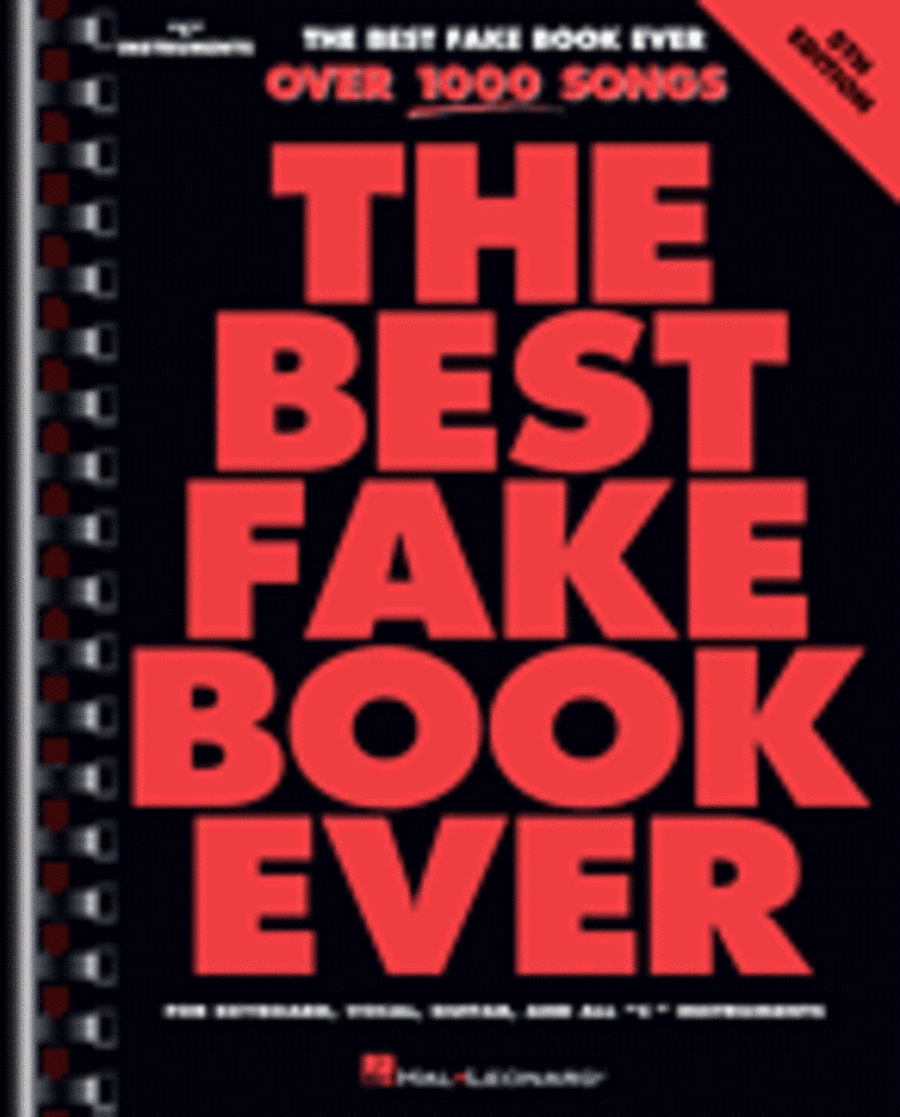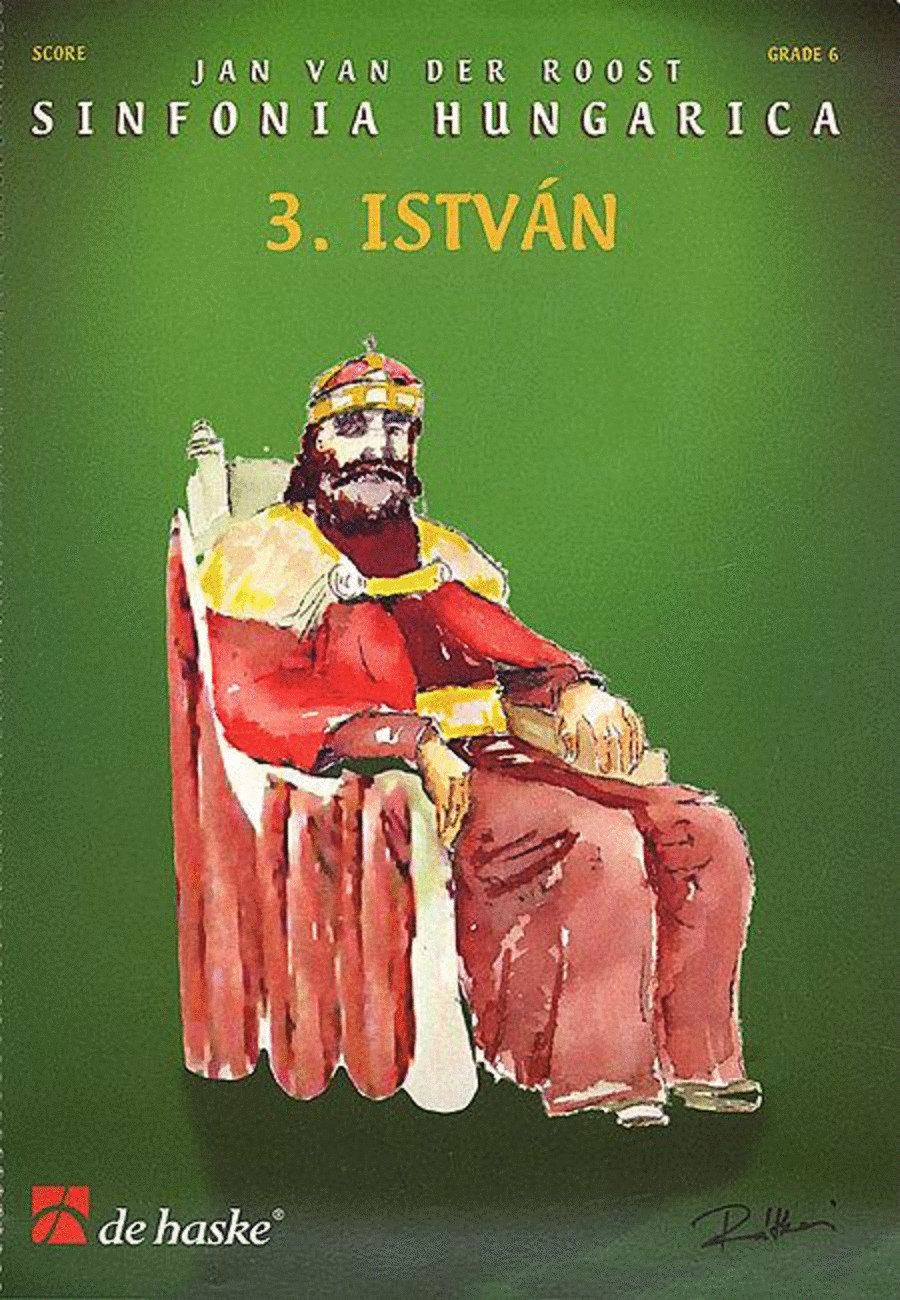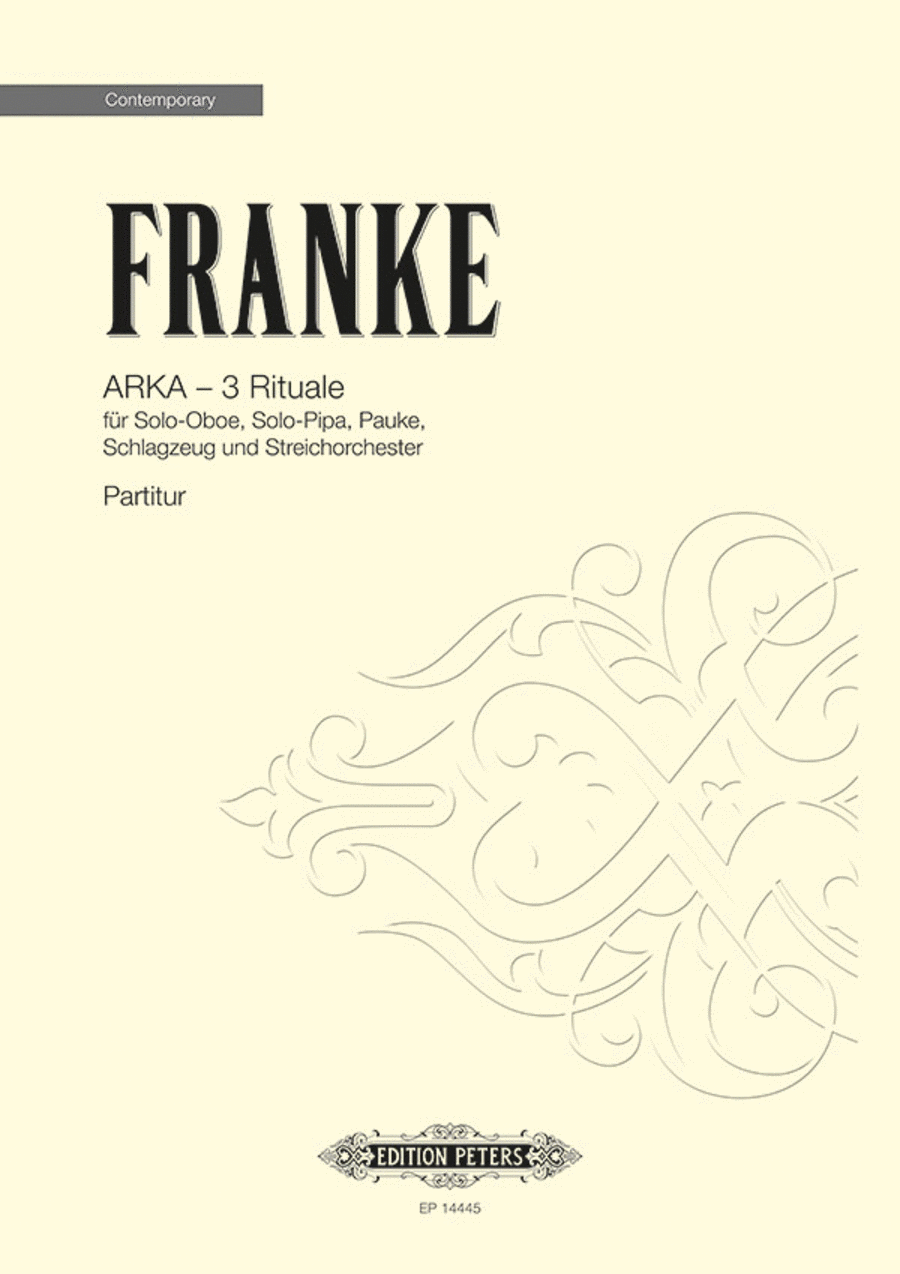|
| 1001 All-Time Hit Songs
Ligne De Mélodie, (Paroles) et
Accords [Partition]
Amsco Wise Publications
Third edition of the world's biggest songbook. This is a vast bumper collection,...(+)
Third edition of the world's biggest songbook. This is a vast bumper collection, perfect for buskers, of 1001 all-time hit songs.Whatever your taste, there's guaranteed to be tonnes of songs you'll want to play, this book will last you years!Inside the spiral bound cover you will find a generous selection of hit songs, golden standards, jazz and blues numbers, classical pieces, hymns, gospel songs, stage, film and musical music! Arranged here in Melody line arrangements for Piano, Organ, Electronic Keyboards, Guitar and all C instruments, complete with lyrics and chord symbols. / Ligne Mélodique, Paroles Et Accords (Avec Grilles D'Accords)
Délais: 2-5 jours - En Stock Fournisseur | | |
| Jazz : La Discothèque
Idéale En 25 Albums
Originaux (Coffret 25 CD)
CD [Coffret CDs]
- Record Label: Sony
- Catalog#: 88697 720092
- Country Of Release:...(+)
- Record Label: Sony
- Catalog#: 88697 720092
- Country Of Release: NLD
- Year Of Release: 2010
- Notes: 25 Original Albums In Noble Box
Délais: En Stock | | |
| New Busker's
Fakebook 1001 All-Time
Hit Songs
[Sheet music] - Facile
Music Sales
The second volume of a thousand and one all-time hit songs ranging from essentia...(+)
The second volume of a thousand and one all-time hit songs ranging from essential standards to the latest pop hits - a must for all singers and musicians. / Chant Et Guitare
Délais: 2-5 jours - En Stock Fournisseur | | |
| The Real Book Play Along
Vol.1 6th Edition C
Instruments (livre + Cle
Usb)
Instruments en Do [Fake Book]
Hal Leonard
The Real Book you know and love has now been updated to include backing tracks f...(+)
The Real Book you know and love has now been updated to include backing tracks for 240 songs on one convenient USB flash drive stick! The play-along CDs alone are worth $100 so this is an amazing package price! The Real Books are the best-selling jazz books of all time. Since the 1970s, musicians have trusted these volumes to get them through every gig, night after night. The problem is that the books were illegally produced and distributed without any reqard to copyright law or royalties paide to the composers who created these musical masterpieces. Hal Leonard is very proud to present the first legitimate and legal editions of these books ever produced. You won't even notice the difference, other than that all of the notorious errors have been fixed! (I Love You) For Sentimental Reasons [Best, William] [Watson, Deek] (The Old Man From) The Old Country [Adderley, Nat] [Lewis, Curtis, R.] 500 Miles High [Corea, Chick] [Potter, Neville] 502 Blues [Rowles, James] A Child Is Born [Jones, Thad] A Fine Romance [Kern, Jerome] [Fields, Dorothy] A Man And A Woman (Un Homme Et Une Femme) [Lai, Francis] [Barouh, Pierre] [Keller, Jerry] A Night In Tunisia [Gillespie, John 'Dizzy'] [Paparelli, Frank] A String Of Pearls [Grey, Jerry] A Sunday Kind Of Love [Belle, Barbara] [Prima, Louis] [Leonard, Anita] [Rhodes, Stan] African Flower (Petite Fleur Africaine) [Ellington, Duke] Afro Blue [Santamaria, Mongo] Afternoon In Paris [Lewis, John] Água De Beber (Water To Drink) [Jobim, Antonio Carlos] [Gimbel, Norman] [De Moraes, Vinicius] Airegin [Rollins, Sonny] Alfie [Bacarach, Burt] [David, Hal] Alice In Wonderland [Fain, Sammy] [Hilliard, Bob] All Blues [Davis, Miles] All By Myself [Berlin, Irving] All Of Me [Simons, Seymour] [Marks, Gerald] All Of You [Porter, Cole] All The Things You Are [Kern, Jerome] [Hammerstein II, Oscar] Alright, Okay, You Win [Watts, Mayme] Always [Berlin, Irving] Ana Maria [Shorter, Wayne] Angel Eyes [Dennis, Matt] [Brent, Earl] Anthropology [Parker, Charlie] [Gillespie, Dizzy] Apple Honey [Herman, Woody] April In Paris [Duke, Vernon] [Harburg, E. Y.] April Joy [Metheny, Pat] Arise, Her Eyes [Swallow, Steve] Armageddon [Shorter, Wayne] Au Privave [Parker, Charlie] Autumn In New York [Duke, Vernon] Autumn Leaves [Kosma, Joseph] [Mercer, Johnny] [Prevert, Jacques] Beautiful Love [Young, Victor] [King, Wayne] [Van Alstyne, Egbert] [Gillespie, Haven] Beauty And The Beast [Shorter, Wayne] Bessie's Blues [Coltrane, John] Bewitched [Rodgers, Richard] [Hart, Lorenz] Big Nick [Coltrane, Nick] Black Coffee [Webster, Paul Francis] [Burke, Sonny] Black Diamond [Sealey, Milton] Black Narcissus [Henderson, Joe] Black Nile [Shorter, Wayne] Black Orpheus [Bonfa, Luiz] Blue Bossa [Dorham, Kenny] Blue In Green [Davis, Miles] Blue Monk [Monk, Thelonious] Blue Train (Blue Trane) [Coltrane, John] Blues For Alice [Parker, Charlie] Bluesette [Thielemans, Jean] [Gimbel, Norman] Body And Soul [Green, John] [Heyman, Edward] [Sour, Robert] [Eyton, Frank] Boplicity (Be Bop Lives) [Davis, Miles] [Evans, Gil] Bright Size Life [Metheny, Pat] Broad Way Blues [Coleman, Ornette] Broadway [Byrd, Bill] [McRae, Teddy] [Woode, Henri] But Beautiful [Van Heusen, Jimmy] [Burke, Johnny] Butterfly [Hancock, Herbie] [Maupin, Bennie] Byrd Like [Hubbard, Freddie] Call Me [Hatch, Tony] Call Me Irresponsible [Van Heusen, James] [Cahn, Sammy] Can't Help Lovin' Dat Man [Kern, Jerome] [Hammerstein II, Oscar] Captain Marvel [Corea, Chick] Central Park West [Coltrane, John] Ceora [Morgan, Lee] C'est Si Bon [Betti, Henri] [Seelen, Jerry] [Hornez, Andre] Chega De Saudade (No More Blues) [Jobim, Antonio Carlos] [De Moraes, Vinicius] Chelsea Bells [Swallow, Steve] Chelsea Bridge [Strayhorn, Billy] Cherokee (Indian Love Song) [Noble, Ray] Cherry Pink And Apple Blossom White [Louiguy] [Larue, Jacques] [David, Mack] Chippie [Coleman, Ornette] Chitlins Con Carne [Burrell, Kenny] Come Sunday [Ellington, Duke] Como En Vietnam [Swallow, Steve] Con Alma [Gillespie, John 'Dizzy'] Conception [Shearing, George] Confirmation [Parker, Charlie] Contemplation [Tyner, McCoy] Coral [Jarrett, Keith] Cotton Tail [Ellington, Duke] Could It Be You [Porter, Cole] Countdown [Coltrane, John] Crescent [Coltrane, John] Crystal Silence [Corea, Chick] D Natural Blues [Montgomery, John L. (Wes)] Daahoud [Brown, Clifford] Dancing On The Ceiling [Rodgers, Richard] [Hart, Lorenz] Darn That Dream [Van Heusen, Jimmy] [DeLange, Eddie] Day Waves [Corea, Chick] [Potter, Neville] Days And Nights Waiting [Jarrett, Keith] Dear Old Stockholm [Varmeland] Dearly Beloved [Kern, Jerome] [Mercer, Johnny] Dedicated To You [Cahn, Sammy] [Chaplin, Saul] [Hyzaret] Deluge [Shorter, Wayne] Desafinado [Jobim, Antonio, Carlos] [Mendonca, Newton] Desert Air [Corea, Chick] Detour Ahead [Ellis, Herb] [Frigo, John] [Carter, Lou] Dexterity [Parker, Charlie] Dizzy Atmosphere [Gillespie, John 'Dizzy'] Django [Lewis, John] Doin' The Pig [Swallow, Steve] Dolores [Shorter, Wayne] Dolphin Dance [Hancock, Herbie] Domino Biscuit [Swallow, Steve] Donna Lee [Parker, Charlie] Don't Blame Me [McHugh, Jimmy] [Fields, Dorothy] Don't Get Around Much Anymore [Ellington, Duke] [Russell, Bob] Dream A Little Dream Of Me [Schwandt, Wilbur] [Andree, Fabian] [Kahn, Gus] Dreamsville [Mancini, Henry] [Livingston, Jay] [Evans, Ray] E.S.P. [Shorter, Wayne] Easter Parade [Berlin, Irving] Easy Living [Robin, Leo] [Rainger, Ralph] Easy To Love (You'd Be So Easy To Love) [Porter, Cole] Ecclusiastics [Mingus, Charles] Eighty One [Davis, Miles] [Carter, Ronald] El Gaucho [Shorter, Wayne] Epistrophy [Monk, Thelonious] [Clarke, Kenny] Equinox [Coltrane, John] Equipoise [Cowell, Stanley] Fall [Shorter, Wayne] Falling Grace [Swallow, Steve] Falling In Love With Love [Rodgers, Richard] [Hart, Lorenz] Fee-Fi-Fo-Fum [Shorter, Wayne] Follow Your Heart [McLaughlin, John] Footprints [Shorter, Wayne] For All We Know [Coots, Fred, J.] [Lewis, Sam M.] For Heaven's Sake [Meyer, Don] [Bretton, Elise] [Edwards, Sherman] Forest Flower [Lloyd, Charles] Four [Davis, Miles] Four On Six [Montgomery, John L. (Wes)] Freddie Freeloader [Davis, Miles] Freedom Jazz Dance [Harris, Eddie] Full House [Montgomery, John L. (Wes)] Gee Baby, Ain't I Good To You [Redman, John] [Razaf, Andy] Gemini [Heath, Jimmy] Giant Steps [Coltrane, John] Gloria's Step [Le Faro, Scott] God Bless' The Child [Herzog Jnr, Arthur] [Holiday, Billie] Golden Lady [Wonder, Stevie] Good Evening Mr. And Mrs. America [Guerin, John] Grand Central [Coltrane, John] Groovin' High [Gillespie, John 'Dizzy'] Grow Your Own [Jarrett, Keith] Guilty [Kahn, Gus] [Whiting, Richard] [Akst, Harry] Gypsy In My Soul [Boland, Clay] [Jaffe, Moe] Half Nelson [Davis, Miles] Have You Met Miss Jones' [Rodgers, Richard] [Hart, Lorenz] Heaven [Ellington, Duke] Heebie Jeebies [Atkins, Boyd] Hello, Young Lovers [Rodgers, Richard] [Hammerstein II, Oscar] Here's That Rainy Day [Van Heusen, Jimmy] [Burke, Johnny] Hot Toddy [Hendler, Herb] [Flanagan, Ralph] House Of Jade [Shorter, Wayne] How High The Moon [Lewis, Morgan] [Hamilton, Nancy] How Insensitive (Insensatez) [Jobim, Antonio, Carlos] [De Moraes, Vinicius] [Gimbel, Norman] How My Heart Sings [Zindars, Earl] [Zindars, Anne] Hullo Bolinas [Swallow, Steve] I Can't Get Started With You [Duke, Vernon] [Gershwin, Ira] I Can't Give You Anything But Love [McHugh, Jimmy] [Fields, Dorothy] I Could Write A Book [Rodgers, Richard] [Hart, Lorenz] I Got It Bad And That Ain't Good [Ellington, Duke] [Webster, Paul Francis] I Let A Song Go Out Of My Heart [Ellington, Duke] [Nemo, Henry] [Redmond, John] [Mills, Irving] I Love Paris [Porter, Cole] I Love You [Porter, Cole] I Mean You [Monk, Thelonious] [Hawkins, Coleman] I Remember Clifford [Golson, Benny] I Should Care [Cahn, Sammy] [Stordahl, Axel] [Weston, Paul] I Wish I Knew How It Would Feel To Be Free [Taylor, Billy] Icarus [Twoner, Ralph N.] If You Never Come To Me (Inutil Paisagem) [Jobim, Antonio Carlos] [De Oliveira, Aloysio] [Gilbert, Ray] I'll Never Smile Again [Lowe, Ruth] I'll Remember April [Johnston, Pat] [Raye, Don] [De Paul, Gene] I'm All Smiles [Leonard, Michael] [Martin, Herbert] I'm Beginning To See The Light [George, Dan] [Hodges, Johnny] [Ellington, Duke] [James, Harry] I'm Your Pal [Swallow, Steve] Impressions [Coltrane, John] In A Mellow Tone [Ellington, Duke] In A Sentimental Mood [Ellington, Duke] In The Mood [Garland, Joe] In The Wee Small Hours Of The Morning [Mann, David] [Hilliard, Bob] In Your Quiet Place [Jarrett, Keith] Indian Lady [Ellis, Don] Inner Urge [Henderson, Joe] Interplay [Evans, Bill] Invitation [Kaper, Bronislam] [Webster, Paul Francis] Iris [Shorter, Wayne] Is You Is, Or Is You Ain't (Ma' Baby) Isn't It Romantic' [Rodgers, Richard] [Hart, Lorenz] Isotope [Henderson, Joe] Israel [Carisi, John] It Don't Mean A Thing (If It Ain't Got That Swing) [Ellington, Duke] [Mills, Irving] It's Easy To Remember [Rodgers, Richard] [Hart, Lorenz] Jelly Roll [Mingus, Charles] Jordu [Jordan, Duke] Journey To Recife [Evans, Richard] [Gimbel, Norman] Joy Spring [Brown, Clifford] Juju [Shorter, Wayne] Jump Monk [Mingus, Charles] June In January [Robin, Leo] [Rainger, Ralph] Just One More Chance [Johnston, Arthur] [Coslow, Sam] Kelo [Johnson, J. J.] Lady Bird [Dameron, Tadd] Lady Sings The Blues [Nichols, Herbert] [Holiday, Billie] Lament [Johnson, J.J] Las Vegas Tango [Evans, Gil] Lazy Bird [Coltrane, John] Lazy River [Carmichael, Hoagy] Like Someone In Love [Van Heusen, Jimmy] [Burke, Johnny] Limehouse Blues [Braham, Philip] [Furber, Douglas] Lines And Spaces [Lovano, Joe] Litha [Corea, Chick] Little Boat (O Barquinho) [Menescal, Roberto] [Boscoli, Ronaldo] [Kaye, Buddy] Little Waltz [Carter, Ron] Long Ago (And Far Away) [Kern, Jerome] [Gershwin, Ira] Lonnie's Lament [Coltrane, John] Look To The Sky [Jobim, Antonio Carlos] Love Is The Sweetest Thing [Noble, Ray] Lucky Southern [Jarrett, Keith] Lullaby Of Birdland [Shearing, George] [Weiss, George David] Lush Life [Strayhorn, Billy] Mahjong [Shorter, Wayne] Maiden Voyage [Hancock, Herbie] Man In The Green Shirt [Zawinul, Joe] Meditation (Meditacao) [Jobim, Antonio Carlos] [Mendonca, Newton] [Gimbel, Norman] Memories Of Tomorrow [Jarrett, Keith] Michelle [Lennon, John] [McCartney, Paul] Midnight Mood [Zawinul, Josef] Midwestern Nights Dream [Metheny, Pat] Milano [Lewis, John] Minority [Gryce, Gigi] Miss Ann [Dolphy, Eric] Missouri Uncompromised [Metheny, Pat] Misty [Garner, Erroll] Miyako [Shorter, Wayne] Moment's Notice [Coltrane, John] Mood Indigo [Ellington, Duke] [Mills, Irving] [Bigard, Albany] Moonchild [Jarrett, Keith] Mr. P.C. [Coltrane, John] My Buddy [Donaldson, Walter] [Kahn, Gus] My Favorite Things [Rodgers, Richard] [Hammerstein II, Oscar] My Foolish Heart [Young, Victor] [Washington, Ned] My Funny Valentine [Rodgers, Richard] [Hart, Lorenz] My One And Only Love [Wood, Guy] [Mellin, Robert] My Romance [Rodgers, Richard] [Hart, Lorenz] My Shining Hour [Arlen, Harold] [Mercer, Johnny] My Ship [Weill, Kurt] [Gershwin, Ira] My Way [Revaux, Jacques] [Francois, Claude] [Anka, Paul] [Thibaud, Gilles] Mysterious Traveller [Shorter, Wayne] Naima (Niema) [Coltrane, John] Nardis [Davis, Miles] Nefertiti [Shorter, Wayne] Never Will I Marry [Loesser, Frank] Nica's Dream [Silver, Horace] Night Dreamer [Shorter, Wayne] Night Train [Forrest, Jimmy] [Washington, Oscar] [Simpkins, Lewis C.] Nobody Knows You When You're Down And Out [Cox, Jimmie] Nostalgia In Times Square [Mingus, Charles] Nuages [Reinhardt, Django] [Larue, Jacques] Oleo [Rollins, Sonny] Oliloqui Valley [Hancock, Herbie] Once I Loved (Amor Em Paz) (Love In Peace) [Jobim, Antonio Carlos] [De Morales, Vinicius] [Gilbert, Ray] Once In Love With Amy [Loesser, Frank] One Finger Snap [Hancock, Herbie] One Note Samba (Samba De Uma Nota So) [Jobim, Antonio Carlos] [Mendonca, Newton] Only Trust Your Heart [Carter, Benny] [Cahn, Sammy] Orbits [Shorter, Wayne] Ornithology [Parker, Charlie] [Harris, Bennie] Out Of Nowhere [Green, Johnny] [Heyman, Edward] P.S. I Love You [Jenkins, Gordon] [Mercer, Johnny] Paper Doll [Black, Johnny S.] Passion Dance [Tyner, Mccoy] Passion Flower [Strayhorn, Billy] [Raskin, Milton] Peace [Silver, Horace] Peggy's Blue Skylight [Mingus, Charles] Pent Up House [Rollins, Sonny] Penthouse Serenade [Jason, Will] [Burton, Val] Peri's Scope [Evans, Bill] Pfrancing (No Blues) [Davis, Miles] Pinocchio [Shorter, Wayne] Pithecanthropus Erectus [Mingus, Charles] Poem For #15 (The Saga Of Harrison Crabfeathers) [Kuhn, Steve] Portsmouth Figurations [Swallow, Steve] Prelude To A Kiss [Ellington, Duke] [Gordon, Irving] [Mills, Irving] Prince Of Darkness [Shorter, Wayne] Pussy Cat Dues [Mingus, Charles] Quiet Nights Of Quiet Stars (Corcovado) [Jobim, Antonio Carlos] [Lees, Gene] Quiet Now [Zeitlin, Denny] Recorda Me [Henderson, Joe] Red Clay [Hubbard, Freddie] Reflections [Monk, Thelonious] Reincarnation Of A Lovebird [Mingus, Charles] Ring Dem Bells [Ellington, Duke] [Mills, Irving] Road Song [Montgomery, John L. (Wes)] 'Round Midnight [Monk, Thelonious] [Williams, Cootie] [Hanighen, Bernie] Ruby, My Dear [Monk, Thelonious] Satin Doll [Ellington, Duke] Scotch And Soda [Guard, Dave] Scrapple From The Apple [Parker, Charlie] Sea Journey [Corea, Chick] [Potter, Neville] Seven Come Eleven [Goodman, Benny] [Christian, Charlie] Seven Steps To Heaven [Davis, Miles] [Feldman, Victor] Sidewinder [Morgan, Lee] Silver Hollow [DeJohnette, Jack] Sirabhorn [Metheny, Pat] Skating In Central Park [Lewis, John] So Nice (Summer Samba) [Valle, Marcos] [Valle, Paulo Sergio] [Gimbel, Norman] So What [Davis, Miles] Solar [Davis, Miles] Solitude [Ellington, Duke] [De Lange, Eddie] [Mills, Irving] Some Day My Prince Will Come [Churchill, Frank] [Morel, Larry] Some Other Spring [Herzog Jnr, Arthur] [Kitchings, Irene] Some Skunk Funk [Brecker, Randy] Somebody Loves Me [Gershwin, George] [DeSylva, B. G.][MacDonald, Ballard] [Ranaud, Emelia] Sometime Ago [Mihanovich, Sergio] Song For My Father [Silver, Horace] Sophisticated Lady [Ellington, Duke] [Mills, Irving] [Parish, Micthell] Speak No Evil [Shorter, Wayne] Standing On The Corner [Loesser, Frank] Stella By Starlight [Young, Victor] [Washington, Ned] Steps [Corea, Chick] Stolen Moments [Nelson, Oliver] Stompin' At The Savoy [Goodman, Benny] [Sampson, Edgar] [Webb, Chick] Straight No Chaser [Monk, Thelonious] Stuff [Davis, Miles] Sugar [Turrentine, Stanley] Swedish Pastry [Kessel, Barney] Sweet Georgia Bright [Lloyd, Charles] Sweet Henry [Swallow, Steve] [Gregg, Jack] Take Five [Desmond, Paul] Take The 'A' Train [Strayhorn, Billy] Tame Thy Pen [Niles, Richard] Tell Me A Bedtime Story [Hancock, Herbie] Thanks For The Memory [Robin, Leo] [Rainger, Ralph] That's Amoré (That's Love) [Warren, Harry] [Brooks, Jack] The Blue Room [Rodgers, Richard] [Hart, Lorenz] The Girl From Ipanema (Garôta De Ipanema) [Jobim, Antonio Carlos] [Gimbel, Norman] [De Moraes, Vinicius] The Green Mountains [Swallow, Steve] The Inch Worm [Loesser, Frank] The Intrepid Fox [Hubbard, Freddie] The Magician In You [Jarrett, Keith] The Most Beautiful Girl In The World [Rodgers, Richard] [Hart, Lorenz] The Night Has A Thousand Eyes [Brainin, Jerry] [Bernier, Buddy] The Song Is You [Kern, Jerome] [Hammerstein II, Oscar] The Sorcerer [Hancock, Herbie] The Sphinx [Coleman, Ornette] The Star-Crossed Lovers [Ellington, Duke] [Strayhorn, Billy] The Surrey With The Fringe On Top [Rodgers, Richard] [Hammerstein II, Oscar] The World Is Waiting For The Sunrise [Seitz, Ernest] [Lockhart, Eugene] There Is No Greater Love [Jones, Isham] [Symes, Marty] There Will Never Be Another You [Warren, Harry] [Gordon, Mack] There'll Be Some Changes Made [Overstreet, Benton] [Higgins, Billy] They Didn't Believe Me [Kern, Jerome] [Reynolds, Herbert] Think On Me [Cables, George] Thou Swell [Rodgers, Richard] [Hart, Lorenz] Three Flowers [Tyner, McCoy] Time Remembered [Evans, Bill] Tones For Joan's Bones [Corea, Chick] Topsy [Battle, Edgar] [[Durham, Eddie] Tour De Force [Gillespie, John 'Dizzy'] Triste [Jobim, Antonio Carlos] Tune Up [Davis, Miles] Turn Out The Stars [Evans, Bill] [Lees, Gene] Twisted Blues [Montgomery, John, L. (Wes)] Unchain My Heart [Sharp, Bobby] [Powell, Teddy] Uniquity Road [Metheny, Pat] Unity Village [Metheny, Pat] Up Jumped Spring [Hubbard, Freddie] Upper Manhattan Medical Group (UMMG) [Strayhorn, Billy] Valse Hot [Rollins, Sonny] Very Early [Evans, Bill] Virgo [Shorter, Wayne] Wait Till You See Her [Rodgers, Richard] [Hart, Lorenz] Waltz For Debby [Evans, Bill] [Lees, Gene] Wave [Jobim, Antonio Carlos] We'll Be Together Again [Fischer, Carl] [Lane, Frankie] Well You Needn't (It's Over Now) [Monk, Thelonious] [Perro, Mike] West Coast Blues [Montgomery, John L. (Wes)] What Am I Here For' [Ellington, Duke] What Was [Corea, Chick] When I Fall In Love [Young, Victor] [Heyman, Edward] When Sunny Gets Blue [Fischer, Marvin] [Segal, Jack] When You Wish Upon A Star [Harline, Leigh] [Washington, Ned] Whispering [Coburn, Richard] [Schonberger, John] [Rose, Vincent] Wild Flower [Shorter, Wayne] Windows [Corea, Chick] Witch Hunt [Shorter, Wayne] Wives And Lovers (Hey, Little Girl) [Bacharach, Burt] [David, Hal] Woodchopper's Ball [Bishop, Joe] [Herman, Woody] Woodyn' You [Gillespie, Dizzy] Yes And No [Shorter, Wayne] Yesterday [Lennon, John] [McCartney, Paul] Yesterdays [Kern, Jerome] [Harbach, Otto] You Are The Sunshine Of My Life [Wonder, Stevie] You Are Too Beautiful [Rodgers, Richard] [Hart, Lorenz] You Brought A New Kind Of Love To Me [Fain, Sammy] [Kahal, Irving] [Norman, Pierre] You Don't Know What Love Is [Raye, Don] [DePaul, Gene] You Took Advantage Of Me [Rodgers, Richard] [Hart, Lorenz] Young At Heart [Richards, Johnny] [Leigh, Carolyn] You're Nobody 'Til Somebody Loves You [Morgan, Russ] [Stock, Larry] [Cavanaugh, James]
Délais: Sur commande | | |
| Real Vocal Book Vol.1 -
Low Voice
Voix basse
Hal Leonard
The Real Vocal Book has many of the selections from volumes 1 and 2 of the instr...(+)
The Real Vocal Book has many of the selections from volumes 1 and 2 of the instrumental Real Books, but now with the lyrics added to the pre-existing melody line. This songbook contains nearly 300 essential songs compiled especially for singers, including: Alfie, All of Me, Autumn Leaves, Bewitched, Bluesette, Don't Get Around Much Anymore, Fever, Georgia on My Mind, Misty, Moon River, My Funny Valentine, Satin Doll and more. (All Of A Sudden) My Heart Sings [Rome, Harold] [Jamblan] [Herpin, Laurent] A Child Is Born [Jones, Thad] [Wilder, Alec] A Day In The Life Of A Fool (Manhã De Carnaval)[Bonfay, Luiz] [Sigman, Carl] A Fine Romance [Kern, Jerome] [Fields, Dorothy] A Man And A Woman (Un Homme Et Une Femme) [Lai, Francis] [Barouh, Pierre] [Keller, Jerry] A Sunday Kind Of Love [Belle, Barbara] [Prima, Louis] [Leonard, Anita] [Rhodes, Stan] A Weaver Of Dreams [Young, Victor] [Elliott, Jack] A Wonderful Day Like Today [Bricusse, Leslie] [Newley, Anthony] Àgua De Beber (Water To Drink) [Jobim, Antonio Carlos] [Gimbel, Norman] [De Moraes, Vinicius] Alfie [Bacharach, Burt] [David, Hal] Alice In Wonderland [Fain, Sammy] [Hillard, Bob] All Alone (Left Alone) [Holiday, Billie] [Waldron, Mal] All Of Me [Simons, Seymour] [Marks, Gerald] All Of You [Porter, Cole] All The Things You Are [Kern, Jerome] [Hammerstin II, Oscar] Alright, Okay, You Win [Watts, Mayme] [Wyche, Sid] Always[Berlin, Irving] Angel Eyes [Dennis, Matt] [Brent, Earl] April In Paris [Duke, Vernon] [Harburg, E. Y.] Are You Havin' Any Fun' [Fain, Sammy] [Jack, Yellen] Autumn In New York [Duke, Vernon] Autumn Leaves [Kosma, Joseph] [Mercer, Johnny] [Prevert, Jacques] Avalon [Rose, Vincent] [Jolson, Al] [DeSylva, B. G.] Azure [Ellington, Duke] [Mills, Irving] Baby, It's Cold Outside [Loesser, Frank] Barltimdre Oriole [Carmichael, Hoagy] [Webster, Paul Francies] Basin Street Blues [Williams, Spencer] Bewitched [Rodgers, Richard] [Hart, Lorenz] Beyond The Sea[Trenet, Charles] [Lasry, Albert] [Laurence, Jack] Billie's Blouse (I Love My Man) [Holiday, Billie] Billie's Bounce (Bill's Bounce) [Parker, Charlie] [Jefferson, Eddie] Birland [Zawinul, Josef] [Hendricks, Jon] Blame It On My Youth [Levant, Oscar] [Heyman, Edward] Blues Skies [Berlin, Irving] Bluesette [Thielemans, Jean] [Gimbel, Norman] Body And Soul [Green, John] [Heyman, Edward] [Sour, Robert] [Eyton, Frank] But Beautiful [Van Hensen, Jimmy] [Burke, Johnny] Bye Bye Blackbird [Henderson, Ray] [Dixon, Mort] Call Me Irresponsible [Van Heusen, James] [Cahn, Sammy] Call Me[Hatch, Tony] Candy[Kramer, Alex] [Whitney, Joan] [David, Mack] Can't Help Lovin' Dat Man [Kern, Jerome] [Hammerstin II, Oscar] Cast Your Fate To The Wind [Guaraldi, Vince] [Werver, Carel] Chega De Saudade (No More Blues) [Jobim, Antonio Carlos] [De Moraes, Vinicius] [Hendricks, Jon] [Cavanaugh, Jessie] Cherry Pink And Apple Blossom White [Louiguy, Marcel] [Larus, Jacque] [David, Mack] C-Jam Blues [Ellington, Duke] Come Fly With Me [Van Heusen, James][Cahn, Sammy] Come Rain Or Come Shine [Arien, Harold] [Mercer, Johnny] Come Sunday [Ellington, Duke] Could It Be You [Porter, Cole] Dancing On The Ceiling [Rodgers, Richard] [Hart, Lorenz] Day By Day [Cahn, Sammy] [Stordahl, Axel] [Weston, Paul] Dearly Beloved [Kern, Jerome] [Mercer, Johnny] Desafinado (Off Key) [Jobim, Antonio Carlos] [Mendonca, Newton] [Lees, Gene] Detour Ahead [Ellis, Herb] [Frigo, John] [Carter, Lou] Didn't We [Webb, Jimmy] Dinah [Akst, Harry] [Lewis, Sam M.] [Young, Joe] Do I Love You Because You're Beautiful'[Rodgers, Richard] [Hammerstin II, Oscar] Do Nothin' Till You Hear From Me [Ellington, Duke] [Russel, Bob] Do You Know What It Means To Miss New Orleans [De Lange, Eddie] [Alter, Louis] Don't Blame Me [McHugh, Jimmy] [Fields, Dorothy] Don't Explain [Holiday, Billie] [Herzog, Arthur] Don't Get Around Much Anymore [Ellington, Duke] [Russel, Bob] Doxy [Rollins, Sonny] Dreamsville [Mankini, Henry] [Livingston, Jay] [Evans, Ray] Early Autumn [Burns, Ralph] [Herman, Woody] [Mercer, Johnny] Easter Parade [Berlin, Irving] Easy Living [Robin, Leo] [Rainger, Ralph] Easy To Love (You'd Be So Easy To Love) [Porter, Cole] Epistrophy [Monk, Thelonious] [Clarke, Kenny] Estate [Martino, Bruno][Brighetti, Bruno] Everything I Have Is Yours [Lane, Burton] [Adamson, Harold] Falling In Love With Love [Rodgers, Richard] [Hart, Lorenz] Fever [Davenport, John] [Cooley Eddie] Fly Me To The Moon (In Other Words) [Howard, Bart] For All We Know [Coots, J. Fred][Lewis, Sam M.] For Heaven's Sake [Meyer, Don][Bretton, Elise] [Edwards, Sherman] For Sentimental Reasons [Best, William] [Watson, Deek] Frenest[Dominguez, Alberto] Gee Baby, Ain't I Good To You [Redman, Don] [Razaf, Andy] Georgia On My Mind [Carmichael, Hoagy] [Gorrell, Stuart] Get Me To The Church On Time[Lerner, Alan Jay] [Loewe, Frederick] Get Out Of Town [Porter, Cole] Girl Talk [Hefm, Neal] [Troup, Bobby] God Bless' The Child [Hercog Jr., Arthur][Holiday, Billie] Guilty [Kahn, Gus] [Whiting, Richard] [Akst, Harry] Gypsy In My Soul [Boland, Clay] [Jaffe, Moe] Have You Met Miss Jones' [Rodgers, Richard] [Hart, Lorenz] Hello, Young Lovers [Rodgers, Richard] [Hammerstin II, Oscar] Here's that Rainy Day [Van Heusen, Jimmy] [Burke, Johnny] Ho-Ba-La-La [Gimber, Norman] [Gilberto, Joao] Honeysuckle Rose [Walter, Thomas Fats] [Razaf, Andy] How High The Moon [Lewis, Morgan] [Hamilton Nancy] How Insensitive (Insesatez) [Jobim, Antonio Carlos] [De Moraes, Vinicius] [Gimbel, Norman] How My Heart Sings [Zindars, Earl] [Zindars, Anne] I Believe In You[Loesser, Frank] I Can't Get Started With You [Duke, Vernon] [Gershwin, Ira] I Can't Give You Anything But Love [McHugh, Jimmy] [Fields, Dorothy] I Could Write A Book [Rodgers, Richard] [Hart, Lorenz] I Don't Stand A Ghost Of A Chance [Young, Victor] [Crosby, Bing][Washington, Ned] I Get Along Without You Very Well (Except Sometimes)[Carmichael, Hoagy] I Got It Bad And That Ain't Good[Ellington, Duke] [Webster, Paul Francies] I Have Dreamed[Rodgers, Richard] [Hammerstein II, Oscar] I Hear A Rhapsody [Frajos, George] [Baker, Jack][Gasparre, Dick] I Let A Song Go Out Of My Heart [Ellington, Duke] [Nemo, Henry] [Redmond, John] [Mills, Irving] I Love Paris [Porter, Cole] I Love You [Porter, Cole] I Mean You [Monk, Thelonious] [Hawkins, Coleman] I Remember You [Schertzinger, Victor] [Mercer, Johnny] I Should Care [Cahn, Sammy] [Stordahl, Axel] [Weston, Paul] I Thought About You [Van Hensen, Jimmy] [Mercer, Johnny] I Will Wait For You [Legrand, Michel] [Demy, Jacques] [Cambel, Norman] I Wish I Didn't Love You So [Loesser, Frank] If I Loved You [Rodgers, Richard] [Hammerstin II, Oscar] If I Should Lose You [Robin, Leo][Rainger, Ralph] If I Were A Bell [Loesser, Frank] I'll Know [Loesser, Frank] I'll Never Smile Again [Lowe, Ruth] I'll Remember April [Johnston, Pat] [Raye, Don] [DePaul, Gene] I'm A Fool To Want You[Wolf, Jack] [Herron, Joel] [Sinatra, Frank] I'm Beginning To See The Light [George, Don] [Hodges, Johnny] [Ellington, Duke] [James, Harry] I'm Confessin' (That I Love You) [Neiburg, Al] [Dougherth, Doc] [Reynolds, Ellis] I'm Just A Lucky So And So [Ellington, Duke] [David, Mack] I'm Putting All My Eggs In One Basket [Berlin, Irving] Imagination [Van Hensen, Jimmy] [Burke, Johnny] In A Mellow Tone [Ellington, Duke] In A Sentimental Mood [Ellington, Duke] [Mills, Irving] [Kurtz, Manny] In The Still Of The Night[Porter, Cole] In The Wee Small Hours Of The Morning[Mann, David] [Hilliard, Bob] In Walked Bud [Monk, Thelonious] [Hendricks, John] Indiana (Back Hove Again In Indiana) [Hanley, James F.] [MacDonald, Ballard] Is You Is, Or Is You Ain't (Ma'Baby) [Austin, Billy] [Jordan, Louise] Isn't It Romantic' [Rodgers, Richard] [Hart, Lorenz] It Could Happen To You[Van Hensen, Jimmy] [Burke, Johnny] It Don't Mean A Thing (If It Ain't Got That Swing)[Ellington, Duke] [Mills, Irving] It Might As Well Be Spring [Rodgers, Richard] [Hammerstin II, Oscar] It Will Have To Do Until The Real Thing Comes Along [Holinger, Mann] [Nichols, Alberta] [Chaplin, Saul [Freeman, L. E.] [Cahn, Sammy] It's A Blue World [Wright, Bob] [Forrest, Chet] It's All Right With Me [Porter, Cole] It's Easy To Remember [Rodgers, Richard] [Hart, Lorenz] It's Only A Paper Moon [Arlen, Harold] [Rose, Billy] [Harburg, E. Y.] It's So Peaceful In The Country [Wilder, Alec] I've Found A New Baby (I Found A New Baby) [Palmer, Jack] [Williams, Spencer] I've Told Ev'ry Little Star[Kern, Jerome] [Hammerstin II, Oscar] Jeannine [Pearson, Duke] Jump, Jive An' Wail [Prima, Louise] June In January[Robin, Leo] [Rainger, Ralph] June Is Bustin' Out All Over [Rodgers, Richard] [Hammerstin II, Oscar] Just A Settin' And A Rockin' [Ellington, Duke] [Strayhorn, Billy] Just In Time [Styne, Jule] [Comden, Betty] [Green, Adolph] Just One More Chance [Johnston, Arthur] [Coslow, Sam] Killer Joe [Golson, Benny] [Jones, Quincy] Lady Sings The Blues [Nichols, Herbert] [Holid] Last Night When We Were Young [Arlen, Harold] [Harburg, E. Y.] Lazy River [Carmichael, Hoagy] [Arodin, Sidney] Let's Fall In Love [Arlen, Harold][Koehler, Ted] Let's Get Lost [McHugh, Jimmy] [Loesser, Frank] Like Someone In Love [Van Heusen, Jimmy] [Burke, Johnny] Like Young [Webster, Paul] [Previn, Andre] LimeHouse Blues [Braham, Phillip] [Furber, Douglas] Little Boat [Menescal, Roberto] [Boscoli, Ronaldo] [Kaye, Buddy] Long Ago (And Far Away) [Kern, Jerome] [Gershwin, Ira] Look For The Silver Lining [Kern, Jerome] [DeSylva, Buddy] Love Is Just Around The Corner [Robin, Leo] [Gensler, Lewis E.] Love Is The Sweetest Thing [Noble, Ray] Love, Look Away [Rodgers, Richard] [Hammerstin II, Oscar] Lover [Rodgers, Richard] [Hart, Lorenz] Lover Man (Oh, Where Can You Be') [Davis, Jimmy] [Ramirez, Roger] [Sherman, Jimmy] Lullaby Of Birdland [Shearing, George] [Weiss, George Davis] Lush Life [Strayhorn, Billy] Make Someone Happy[Styne, Jule] [Comden, Betty] [Green, Adolph] Meditation (Meditacao)[Jobim, Antonio Carlos] [Mendonca, Newton] [Gimbel, Norman] Memories Of You [Blake, Eubie] [Razaf, Andy] Michelle [Lennon, John][McCartney, Paul] Misty [Garner, Erroll] [Burke, Johnny] Mood Indigo [Ellington, Duke] [Mills, Irving] [Bigard, Albany] Moon River [Mancini, Henry] [Mercer, Johnny] Moonglow [Hudson, Will] [De Lange, Eddie] [Mills, Irving] More Thank You Know [Youmans, Vincent] [Rose, William] [Eliscu, Edward] My Favortie Things [Rodgers, Richard] [Hammerstin II, Oscar] My Foolish Heart [Young, Victor] [Washington, Ned] My Funny Valentine [Rodgers, Richard] [Hart, Lorenz] My Old Flame [Johnston, Arthur] [Coslow, Sam] My One And Only Love [Wood, Guy] [Mellin, Robert] My Romance [Rodgers, Richard] [Hart, Lorenz] My Shining Hour [Arlen, Harold][Mercer, Johnny] My Way [Revaux, Jacques] [Francois, Claude] [Anka, Paul] [Ghibault, Gilles] Nature Boy [Ahbez, Eden] Nauges[Reinhardt, Django] [Larue, Jacques] Never Will I Marry [Loesser, Frank] Night Song [Adams, Lee] [Strouse, Charles] Now's The Time[Parker, Charlie] Oh, What A Beautiful Mornin' [Rodgers, Richard] [Hammerstin II, Oscar] Old Devil Moon[Lane, Burton] [Harburg, E. Y.] On The Sunny Side Of The Street [McHugh, Jimmy] [Fields, Dorothy] Once I Loved (Amour Em Paz) (Love In Peace) [Jobim, Antonio Carlos] [De Moraes, Vinicius] [Gilbert, Ray] Once In Love With Amy[Loesser, Frank] One Morning In May [Carmichael, Hoagy] [Parish, Mitchell] One Note Samba (Samba De Uma Nota So) [Jobim, Antonio Carlos] [Mendonca, Newton] Only Trust Your Heart [Carter, Benny] [Cahn, Sammy] Our Language Of Love [Monnot, Marguerite] [Breffort, Alexandre] [More, Julian][Heneker, David] [Norman, Monty] Out Of Nowhere [Green, Johhny] [Heyman, Edward] P.S. I Love You [Jenkins, Gordan] [Mercer, Johnny] Paper Doll [Black, Johnny S.] Pennies From Heaven [Johnston, Arthur] [Burke, John] People Will Say We're In Love [Rodgers, Richard] [Hammerstin II, Oscar] Perdido[Tizol, Juan] [Lenk, Harry] [Drake, Ervin] Pick Yourself Up [Kern, Jerome] [Fields, Dorothy] Polka Dots And Moonbeams [Van Heusen, Jimmy] [Burke, Johnny] Prisoner Of Love [Robin, Leo] [Gaskill, Clarence] [Columbo, Russ] Quiet Nights Of Quiet Stars (Corcovado)[Jobim, Antonio Carlos][Lees, Gene] Right As Rain [Arlen, Harold] [Harburg, E. Y.] Ring Dem Bells [Ellington, Duke] [Mills, Irving] Rosetta[Hines, Earl] [Wood, Henri] Route 66 [Troup, Bobby] Russian Lullaby[Berlin, Irving] S' Posin' [Razaf, Andy] [Denniker, Paul] Sack Of Woe [Adderley, Julian] Satin Doll [Ellington, Duke] [Mercer, Johnny] [Strayhorn, Billy] Say It (Over And Over Again) [Loesser, Frank] [McHugh, Jimmy] Sentimental Journey [Green, Bud] [Brown, Less] [Homer, Ben] September Song [Weil, Kurt] [Anderson, Maxwell] Smoke Gets In Your Eyes [Kern, Jerome][Harbach, Otto] Smoke Rings [Gifford, H. Eugene] [Washington, Ned] So Nice (Summer Samba) [Valle, Marcos] [Valle, Paulo Sergio] [Gimbel, Norman] Softly As In A Morning Sunrise [Romberg, Sidmund] [Hammerstin II, Oscar] Solitude [Ellington, Duke] [De Lange, Eddie] [Mills, Irving] Some Day My Prince Will Come[Churchill, Frank] [Morey, Larry] Some Other Spring [Herzog Jr., Arthur] [Kitchings, Irene] Somebody Loves Me [Gershwin, George] [DeSylva, B. G.] [MacDonald, Ballard] [Renaud, Emelia] Songbird (Thank You For Your Lovely Song) [McGlohon, Loonis] Sophisticated Lady [Ellington, Duke] [Mills, Irving] [Parish, Mitchell] Standing On The Corner[Loesser, Frank] Stardust [Carmichael, Hoagy] [Parish, Mitchell] Stella By Starlight [Young, Victor] [Washington, Ned] Stompin' At The Savoy [Goodman, Benny] [Sampson, Edgar] [Webb, Chick] [Razaf, Andy] Struttin' With Some Barbecue [Armstrong, Lillian Hardin] [Raye, Don] Suddenly It's Spring [Van Heusen, James] [Burke, Johnny] Sweet Sue - Just You [Young, Victor] [Harris, Will J.] Tain't What You Do (It's The Way That Cha Do It) [Oliver, Sy] [Young, James] Take Five [Desmond, Paul] Take The A Train [Strayhorn, Billy] Tangerine [Schertzinger, Victor][Mercer, Johnny] Tenderly [Gross, Walter] [Lawrence, Jack] Thanks For The Memory [Robin, Leo] [Rainger, Ralph] That's Amoré (That's Love) [Warren, Harry] [Brooks, Jack] The Birth Of The Blues [Henderson, Ray] [DeSylva, B. G.][Brown, Lew] The Folks Who Live On The Hill[Kern, Jerome] [Hammerstin II, Oscar] the Frim Fram Sauce [Richardel, Joe] [Evans, Redd] The Gift! (Recado Bossa Nova) [Ferreira, Djalma] [Antonio, Luiz][Webster, Paul Francis] The Girl From Ipanema Garôta De Ipanema) [Jobim, Antonio Carlos] [Gimbel, Norman] [De Moraes, Vinicius] The Hucklebuck[Gibson, Andy] [Alfred, Roy] The Inch Worm[Loesser, Frank] The Last Time I Saw Paris [Kern, Jerome][Hammerstin II, Oscar] The Nearness Of You [Carmichael, Hoagy] [Washington, Ned] The Night Has A Thousand Eyes[Brainin, Jerry] [Bernier, Buddy] The Song Is You[Kern, Jerome] [Hammerstin II, Oscar] The Surrey With The Fringe On Top [Rodgers, Richard] [Hammerstin II, Oscar] The Sweetest Sounds [Rodgers, Richard] The Things We Did Last Summer[Styne, Jule] [Cahn, Sammy] The Way You Look Tonight [Kern, Jerome] [Fields, Dorothy] There Is No Greater Love [Jones, Isham][Symes, Marty] There Will Never Be Another You [Warren, Harry] [Gordon, Mack] There'll Be Some Changes Made [Overstreet, W. Benton] [Higgins, Billy] There's A Small Hotel [Rodgers, Richard] [Hart, Lorenz] These Foolish Things (Remind Me Of You) [Strachey, Jack] [Marvell, Holt] They Didn't Believe Me [Kern, Jerome] [Reynolds, Herbert] This Masquerade [Russel, Leon] Thou Swell [Rodgers, Richard] [Hart, Lorenz] Till There Was You [Willson, Meredith] Too Young [Lippman, Sid] [Dee, Sylvia] Two Cigarettes In The Dark [Pollack, Lew] [Webster, Paul Francies] Unchain My Heart [Sharp, Bobby] [Powell, Teddy] Watch What Happens [Legrand, Michel] [Demy, Jacques] [Gimbel, Norman] Wave [Jobim, Antonio Carlos] We'll Be Together Again[Fisher, Carl] [Lane, Frankie] Well You Needn't (It's Over Now) [Monk, Thelonious] [Ferro, Mike] What'll I Do' [Berlin, Irving] What's New' [Haggart, Bob] [Burke, Johnny] When I Fall In Love [Young, Victor] [Heyman, Edward] When Lights Are Low [Carter, Benny] [Williams, Spencer] When Sunny Gets Blue [Fischer, Marvin][Segal, Jack] When You Wish Upon A Star [Harline, Leigh] [Washington, Ned] Whisper Not [Golson, Benny] Who Can I Turn To (When Nobody Needs Me) [Bricusse, Leslie] [Newley, Anthony] Why Do I Love You' [Kern, Jerome] [Hammerstin II, Oscar] Willow Weep For Me [Ronell, Ann] With A Song In My Heart [Rodgers, Richard] [Hart, Lorenz] Without A Song[Rose, William][Eliscu, Edward][Youmans, Vincent] Wives And Lovers (Hey, Little Girl) [Bacharach, Burt] [David, Hal] Yesterday [Lennon, John] [McCartney, Paul] Yesterdays [Kern, Jerome] [Harbach, Otto] You Are The Sunshine Of My Life [Wonder, Stevie] You Are Too Beautiful [Rodgers, Richard] [Hart, Lorenz] You Brought A New Kind Of Love To Me[Fain, Sammy] [Kahal, Irving] [Norman, Pierre] You Don't Know What Love Is [Raye, Don] [DePaul, Gene] You Took Advantage Of Me [Rodgers, Richard] [Hart, Lorenz] You'd Be So Nice To Come Home To [Porter, Cole] Young At Heart[Richards, Johnny] [Leigh, Carolyn] You're Nobody 'Til Somebody Loves You[Morgan, Russ][Stock, Larry] [Cavanaugh, James]
Délais: Sur commande | | |
| Vol.2 Chediak
 En Français En Français
Guitare [Partition]
ID Music
Le livre Vocal réelle est la réponse à l'ouvrage de faux. C'est une alternati...(+)
Le livre Vocal réelle est la réponse à l'ouvrage de faux. C'est une alternative à la pléthore de volumes mal conçues, illisibles, inexacts, mal edited qui abondent sur le marché aujourd'hui. Le livre Vocal réelle est extrêmement précis, soignée et vise, avant tout, pour un usage pratique. Tous les efforts réalisés pour le rendre agréable à effectuer. La sélection de musiques pour ce volume met en évidence les principaux compositeurs jazz du passé des années 60, avec une attention particulière pour les années 1960 et 1970. Un certain nombre de chansons par Rogers
Délais: 2-5 jours - En Stock Fournisseur | | |
| Mantovani Bruno -
L'autre Cote - Soli,
Choeur, Orchestre - Chant
and Piano
Soli, choeur mixte et accompagnement
Soli, chœur mixte et piano
Lemoine, Henry
Commanditaire L'Etat et l'Opéra National du Rhin Notice Un opéra fantastique...(+)
Commanditaire L'Etat et l'Opéra National du Rhin Notice Un opéra fantastique d'après le roman d'Alfred Kubin, Die andere Seite Le livret a été tiré de L'Autre côté d'Alfred Kubin, traduction française de Robert Valençay revue par Christian Hubin (José Corti, 2000) Musique de Bruno Mantovani Livret de François Regnault (avec la collaboration de Bruno Mantovani) J'avais lu il y a longtemps L'Autre côté d'Alfred Kubin, dont le titre m'intriguait. J'avais dû voir des illustrations étranges, visiblement expressionnistes, audacieuses et cauchemardesques de l'artiste, et je m'étonnais qu'il eût écrit un roman. Le roman, assez vite, me saisit, puisqu'il racontait comment le héros, qui semble bien n'être autre que l'auteur, car il est comme lui dessinateur et a comme lui vécu à Salzbourg, se fait inviter par un ancien camarade de lycée dans un empire en lointaine Asie dont il est devenu le chef, et qu'il s'en va donc de l'Autre Côté, où commencent les aventures... On me fit rencontrer Bruno Mantovani, qui avait la commande d'un opéra, de la part de Nicholas Snowman, pour l'Opéra du Rhin. Nous nous sommes vus ensuite à plusieurs reprises, et je n'eus pas de mal à m'entendre avec ce compositeur moderne, dont les oeuvres que j'ai écoutées de lui me plaisent, qui connaît comme pas un - et de l'intérieur - toute l'histoire de l'opéra - et qui, en outre, comptait bien éviter quelques-uns des écueils sur lesquels nous tombions d'accord que l'opéra parfois s'échoue : sans mépris pour qui que ce soit, mais sans fausse modestie non plus. J'aimais l'opéra, depuis que j'avais vu Maria Callas en chanter deux, et depuis ma participation cinq ans comme dramaturge, ou ne je sais quoi, avec Patrice Chéreau à Bayreuth, et j'avais écrit un livret pour Georges Aperghis, avec qui j'ai eu le bonheur de travailler plusieurs fois. Sans parler d'un autre livret pour un autre opéra à venir. Mais étant essentiellement introduit dans le théâtre, je mesurai combien Mantovani sait que l'amour du théâtre, dont il est un excellent spectateur, est bien souvent le schibboleth qui départage les grands compositeurs d'opéra des autres. Le sujet On ne trouve pas forcément tout de suite un sujet de livret, et ensuite, on ne trouve pas forcément le livret de ce sujet. Nous envisagions quelques pistes, nous nous y engagions, et puis nous n'allions pas loin, ou c'était sans issue. D'entrée de jeu, nous étions convenus d'éviter la reprise d'un mythe ancien, fût-il grec ou amérindien, nous mesurions l'extrême difficulté de trouver un mythe moderne - cela ne s'invente pas - et nous répugnions aussi à prendre un sujet qui s'appliquât à l'actualité politique, faute de certitudes, ou plutôt par la conviction qu'on ne traite pas aisément des malheurs du monde, ou du moins, pas aussi frontalement que certains se l'imaginent. Les Soldats de Zimmermann, par exemple, parviennent à une telle portée esthétique et politique parce qu'il est passé par une pièce de Lenz, qui raconte des événements du XVIIIe siècle, Helmut Lachenmann est parvenu à une oeuvre poignante et d'une extrême beauté avec sa Petite Marchande d'allumettes pour parler du gauchisme, à partir d'un écrit de Gudrun Ensslin, parce qu'il est passé par un conte d'Andersen et par des textes de Léonard de Vinci. Je me suis alors souvenu de L'Autre côté, que j'ai relu, et Bruno et moi sommes vite tombés d'accord que cette oeuvre pouvait d'autant plus fortement nous inspirer que l'atmosphère d'inquiétante étrangeté, de fantastique et de décrépitude, très réussie, dans laquelle l'oeuvre est plongée, était au service d'une cause imaginaire, fabuleuse, invraisemblable, mais qui pouvait fonctionner comme une grande et terrible allégorie politique : l'Empire du Rêve, créé de toutes pièces par un richissime illuminé, Claus Patera, condisciple, donc, du dessinateur, constitué par des restes ramassés ou aux quatre coins du monde, dans une région nauséeuse et miasmatique, dont l'idéal promis au début se révèle vite une imposture, sans qu'on sache à qui la faute, car on apprendra que le dictateur lui-même, qu'on ne voit presque jamais, n'y croit plus guère, et combine dans sa personne les traits d'une adolescence angélique, d'une sénilité précoce et d'une espèce de déphasage complet d'avec ce qui se passe dans son Empire. Et pourtant, ce n'est pas faute qu'il n'ait des partisans fanatiques dans la population bizarre de la ville de Perle, capitale de l'Empire. Lorsqu'un Américain tout aussi richissime viendra prendre le défi de le renverser et de s'arroger le gouvernement de l'Empire, peut-être convient-il que vous n'y voyiez pas aussitôt quelque arrangement d'événements récents, non seulement parce que ce roman fut écrit en 1908, avant même ceux de Kafka (que Kubin rencontra d'ailleurs plusieurs fois, et qui restait perplexe devant L'Autre côté), mais aussi parce que l'imaginaire fantastique et la vision poétique de l'auteur viennent hanter le récit de formes et de couleurs venues d'un autre monde : des profondeurs de l'inconscient, sûrement, à une époque où on lui en supposait encore - du fond d'une Angoisse dont on devine que l'auteur est incessamment traversé - mais surtout d'une capacité plastique de rêverie qui franchit constamment la barrière supposée étanche entre l'écriture et le dessin - et si Kubin ne manque pas d'illustrer son propre livre, lui aussi, d'inquiétants dessins étranges, on admire d'autant plus sa virtuosité que les deux techniques qu'il pratique ici de conserve se défendent très bien chacune indépendamment l'une de l'autre. Comme Holbein illustrant Erasme, comme le Goethe du Voyage d'Italie, comme Kipling s'illustrant ses Histoires comme ça, rares exemples. Le livret Je me suis vite dit que ce serait évidemment à la musique de prendre en charge l'imaginaire et le fantastique, et que les indications scéniques du livret, issues toutes du livre, ne seraient là que pour suggérer ce que le compositeur pouvait lire aussi bien que moi dans l'ouvrage. Mais je me suis dit aussi que puisqu'il y aurait des personnages - nous en avons réduit le nombre - et qu'ils parleraient, c'est-à-dire chanteraient, il fallait prendre le plus grand soin qu'avec assez peu de paroles, on puisse suivre exactement l'histoire, la psychologie des personnages principaux (et ici j'utilise à dessein le vocabulaire le plus conventionnel, non pas pour rassurer le réactionnaire et inquiéter l'avant-gardiste, mais parce que chanter des paroles est la matière même de l'opéra), le cours des événements, en même temps que les transformations, métamorphoses, catastrophes et l'apocalypse d'un Empire démoniaque, suscitées sans doute, au-delà de son tyran, par des forces innommables. Si je lui faisais parfois part des représentations musicales ou rythmiques de certaines scènes qu'il avait la gentillesse d'écouter et de transposer dans son art, Bruno Mantovani était en retour plus qu'attentif à la moindre des répliques à mettre en musique, entendant d'une oreille de théâtre ce qui peut se dire, se chanter, se mi-dire, etc. (il y a bien des façons, depuis longtemps, dans l'opéra ou dans le théâtre musical, de dialectiser en musique la différence du parler et du chanter, opposition qui reste opératoire dans son principe, mais qui s'ouvre depuis au moins Schönberg à des variations infinies). Pour la composition d'ensemble, je sais combien l'harmonie, le contrepoint éventuel (il y a un choral !), le rythme, les timbres peuvent, chez un musicien exigeant, s'engendrer, sinon se déduire, à partir de structures simples ou complexes, de sorte que l'écriture, et, donc aussi la perception, consciente ou inconsciente, d'une oeuvre ne se fassent pas au seul fil du récit, ni en fonction du seul effet, même si, au dire de plusieurs compositeurs que j'admire, l'opéra, par sa nature théâtrale, sa spatialité et sa temporalité spécifiques, demande moins de rigueur apparente que d'autres formes d'écriture. Aussi n'ai-je pu m'empêcher, même dans ce qui n'est que le livret, de suivre ou de m'imposer des structures, elles, fort simples, dans l'organisation des scènes, de leurs rapports de ressemblance ou de dissemblance, de leurs correspondances thématiques, - contrastes, répétitions, citations, allusions - d'autant que la fable principale conte la substitution symétrique, jusque dans son affrontement corporel, entre le Maître de l'Empire et l'Américain qui le renverse. L'hybride Il était aisé, en ce sens, de diviser l'oeuvre en deux actes (même si le roman a davantage de parties et de nombreux chapitres), avec un Prologue et un Epilogue : grandeur et décadence de l'Empire du Rêve, conclura-t-on, même si l'intérêt de ce conte est justement de montrer que tout est déjà pourri dans le Royaume de Perle, et que le salut venu d'ailleurs ne fait que liquider la pourriture ! Oui, l'oeuvre de Kubin, aussi bien dessinée qu'écrite (il a écrit plusieurs autres nouvelles), est foncièrement pessimiste. Lorsqu'il a constaté, moins l'horreur du monde que la capacité qu'a le sommeil de la raison d'enfanter des monstres, pour reprendre la formule de Goya, un peintre qu'il aimait, il lui reste à les lâcher en les dessinant. Si Dieu a créé le monde, Claudel pensait qu'il fallait le lui restituer en louange et en poésie, ou en drames dans lesquels le pire ne fût pas toujours sûr. Si le Diable a fait le monde, dirai-je que Kubin pense qu'il faut lui restituer l'histoire de ses calamités et lui tendre le miroir de ses immondices ' La dernière phrase de L'Autre Côté nous donne une étrange réponse : Le démiurge est un être hybride. Tout un roman de quelques centaines de pages pour parvenir à cette phrase peu claire, digne des Gnostiques des premiers siècles du Christianisme ! Mais la phrase peut aussi bien s'éclairer de ce qu'on a dit : puisque le monde semble mauvais, il faut au moins, pour que le pire n'en soit pas toujours le plus sûr, muni de son carnet de croquis, en faire le relevé régulier, en tenant par l'art le malheur à distance, et en mesurant constamment que le démiurge qui a raté le monde, ne pouvait pas faire mieux, qu'il y a en lui du meilleur et du pire, en bref qu'il est hybride ! Mais hybride après tout comme l'homme lui-même, sa victime et son destinataire - ou plutôt, son dessinateur ! Claus Patera, est en effet un personnage dont on ne sait s'il a gardé son innocence ou s'il est déjà complètement abîmé, intrinsèquement, physiquement et spirituellement hybride, à mi-chemin entre le réel et l'irrationnel, habité de forces obscures ou de pulsions obscènes et morbides, mais l'Américain Hercule Bell, un peu décrit comme un Américain digne de Jules Verne, est pris lui aussi dans une dangereuse oscillation entre le philanthrope vantard et le tyran sanguinaire ! Si donc a lieu le Jugement dernier, car aucune apocalypse n'est à écarter, à défaut de nos fautes, nous montrerons nos pulsions, et pour défendre notre prochain ne sachant dessiner, nous arborerons les illustrations par nous de ce monde où nous avons été jetés. Et si le feu ou le déluge anéantissent toutes choses, peut-être restera-t-il au moins quelque part un trait sur le papier, carbonisé ou délavé. A l'ancien camarade de classe, au dictateur hybride, à cet Américain sauveur lui-même si douteux, et qui font couple à la fin dans une espèce de répugnant coït, s'ajoutent donc le couple principal, Kubin - nous l'avons appelé ainsi, bien que l'auteur de le nomme pas - et sa femme. Nous avons, autour d'eux, réduit à trois les personnages qui les entourent, le Coiffeur-philosophe, qui leur sous-loue un appartement, l'Editeur qui passe un contrat avec le dessinateur, et le médecin Lampenbogen, qui soignera Madame Kubin et accompagnera le mari veuf jusqu'à la fin. Les autres personnages sont des comparses, mais il y a le Choeur, qui a une grande importance, et qui compose le peuple entier de Perle, versatile, monstrueux, prêt à tout, morbide et orgiaque, auxquels s'ajoutent mammifères, serpents et insectes, qui sont peut-être des hallucinations, mais dans un monde fantastique, le cauchemar et la réalité se confondent. Le dessinateur La fin de l'aventure se solde pour Kubin par un rapatriement suivi d'un internement. Il serait alors aisé d'en conclure, comme on le fait souvent dans des cas semblables, que toute cette aventure n'aura été qu'une immense hallucination. Outre que ce n'est pas l'idée d'Alfred Kubin, l'auteur réel du livre, cela ne changerait guère la représentation qui en résulterait sur la scène d'un opéra, où ce qu'on voit, que ce soit la vision d'un Faust ou celle d'un Hoffmann, passe forcément pour réel. Le public ne croit que ce qu'il voit et ce qu'il entend, plus qu'ailleurs, il croit tout ce qu'il voit et tout ce qu'il entend, et c'est lui qui a raison. Surtout, j'aime fort que les dernières paroles de Kubin reviennent à dire que désormais, il passe ses meilleures heures avec du papier, des crayons et des bâtons d'encre de Chine... plus proche de l'artiste rêveur, du voyant... Et ce qu'il représentera désormais s'inspirera donc de cette espèce de cosmologie duelle qu'il évoque à propos de Patera : L'attraction et la répulsion... les pôles de la terre... le jours et la nuit... le blanc et le noir... Le blanc et le noir ! Voilà tout le manifeste esthétique de l'illustrateur expressionniste à qui nous devons, disséminées dans des musées et des livres, ces gravures, reconnaissables entre toutes, devant lesquelles nous nous défendons mal d'un malaise devant les souffrances aisément devinables d'un artiste plus écorché que les autres - la guérison par l'art ' Sa vie, racontée par Kubin lui-même ne nous incite pas à conclure ainsi. Là où nous sommes confrontés à la névrose étrangère et toute constituée, écrit Freud à peu près à l'époque même où Kubin écrit L'Autre côté, dans la vie nous appellerons le médecin et tiendrons la figure pour inapte à la scène. Pourtant, sans remontrer à Jérôme Bosch, à Goya, en tout cas à tous ceux que Kubin admira, jusqu'à Odilon Redon et James Ensor, une bonne partie des oeuvres offensives du XXe siècle n'ont-elles pas consisté, malgré les réticences de Freud, à tirer un peu de jouissance de beaucoup de souffrance, et sans réveiller en nous forcément sadisme et masochisme, à nous inviter, à défaut de pâmoisons devant la beauté, ou de complaisances avec la douleur, à de la compassion devant cette souffrance ' L'oeuvre de Kubin n'est pas exempte de bonté lorsqu'il prend pour finir pitié de son persécuteur moribond, et qu'il va jusqu'à trouver de la beauté à son cadavre : L'image d'un dieu antique ! Comme il est beau ! - mais il y a encore, dans cette oeuvre, une autre source de plaisir dont nous souhaitons que l'opéra la fasse aussi sourdre pour le spectateur, c'est une espèce d'humour rocambolesque et glauque qui rend souvent les pulsions des personnages burlesques, leur sexualité, franchement saugrenue, leurs extases, ridicules ! Telles sont quelques-unes des questions que le musicien et le librettiste se sont d'abord posées, avant le metteur en scène Emmanuel Demarcy-Mota, qui a si intimement adhéré au projet aussitôt qu'il l'a connu et qui y a fait entrer de plain pied ses collaborateurs - telle est cette étrange entreprise qu'il nous plaît à tous trois de regarder encore aujourd'hui comme risquée. Vérifier que le public voudra bien courir le risque avec nous est notre plus cher désir. François Regnault Presse Bruno Mantovani aborde, à bientôt trente-deux ans, son premier opéra avec l'ambition de rendre au fantastique du roman d'Alfred Kubin (1877-1959) sa force originale et son étrangeté narrative. L'Autre côté, fable sans morale, met en scène l'Empire du rêve, absurde refuge contre tout progrès, qui plonge dans le chaos après avoir été soustrait à la dictature de son chef Patéra. Récit admirable et visionnaire, accompagné par l'auteur d'effrayantes illustrations, il a marqué l'Europe centrale littéraire et artistique du début du XXe siècle. Bruno Mantovani, associé au dramaturge François Regnault et au metteur en scène Emmanuel Demarcy-Mota, cherche à rendre le mouvement perpétuel de cet effondrement. L'orchestre y est vaste et brillant, incluant six percussions dont le rôle est d'élargir l'espace sonore. Le choeur - cette masse grouillante proche des images apocalyptiques de Kubin - mobilise et anime la scène. Les rôles solistes enfin se répartissent autour du narrateur, Alfred Kubin lui-même, personnage central emporté dans ce drame sans fin. Cette création mondiale constitue l'élément fédérateur du portrait consacré au jeune compositeur français par Musica, en collaboration avec l'Opéra national du Rhin. Musica Antoine Gindt
Délais: En Stock | | |
| Celtic Fake Book Over 400
Songs 'C'
Instruments en Do [Fake Book]
Hal Leonard
Edition c. La popularité de la musique celtique a explosé au cours des dix der...(+)
Edition c. La popularité de la musique celtique a explosé au cours des dix dernières années en raison de la recrudescence des instruments folk, danse celtique et la culture irlandaise globale. Cette étonnante collection réunit plus de 400 chansons d'Irlande, Ecosse et du pays de Galles - complet, avec des paroles gaéliques, le cas échéant - et un guide de prononciation. Titres comprennent: à travers l'ouest de l'océan o avec mon amour, j'irai o autel Isle o ' la mer o Auld Lang Syne o Avondale o The Band Played On o o Barbara Allen bénédiction de la route o o The Blue Bells of Scotland The Lass Bonniest o o A Bunch of thym The Chanty que captif le o de la sorcière Colomb était un irlandais o o Danny Boy de Duffy bourdes o Erin ! OH Erin ! o o de sillage du père Murphy o Finnegan Galway Piper o la fille j'ai laissé derrière moi o a quelqu'un ici vu Kelly o je sais où je suis Irish Rover Goin ' o o Loch Lomond o o Molly Malone My Bonnie trouve au-dessus de l'océan o mon o Rose irlandais sauvage les rives du Amerikay o The Sons of Liberty o qui est un o berceuse irlandais lorsque irlandais Ey... / Instruments En C / 256 pages / Partition
Délais: 2-5 jours - En Stock Fournisseur | | |
| The Real Vocal Book -
Vol.I
Voix haute [Fake Book]
Hal Leonard
The Real Vocal Book has many of the selections from volumes 1 and 2 of the instr...(+)
The Real Vocal Book has many of the selections from volumes 1 and 2 of the instrumental Real Books, but now with the lyrics added to the pre-existing melody line.This songbook contains nearly 300 essential songs compiled especially for singers, including: Alfie, All of Me, Autumn Leaves, Bewitched, Bluesette, Don't Get Around Much Anymore, Fever, Georgia on My Mind, Misty, Moon River, My Funny Valentine, Satin Doll and more. / Voix Haute
Délais: 2-5 jours - En Stock Fournisseur | | |
| Canzoniere International
Vol.1
Paroles et Accords
Carisch
255 Testi con accordi dei successi internazionali. / Pop & rock / Recueil / Cha...(+)
255 Testi con accordi dei successi internazionali. / Pop & rock / Recueil / Chanson
Délais: 2-5 jours - En Stock Fournisseur | | |
| 250 Tubes Variete
Internationale - Paroles,
Accords
 En Français En Français
Paroles et Accords [Livre]
Volonte and Co
(Out Here) On My Own (Nikka Costa) - 1973 (James Blunt) - 7 Seconds (Youssou ?N ...(+)
(Out Here) On My Own (Nikka Costa) - 1973 (James Blunt) - 7 Seconds (Youssou ?N Dour) - ?74 ?75 (The Connells) - A Groovy Kind Of Love (Phil Collins) - A Horse With No Name (America) - A Kind Of Magic (Queen) - A New Flame (Simply Red) - A Woman's Worth (Alicia Keys) - About A Girl (Nirvana) - Again (Lenny Kravitz) - Against All Odds (Take A Look At Me Now) (Phil Collins) - Ain't Misbehavin' (Louis Armstrong) - All Apologies (Nirvana) - All Night Long (Lionel Richie) - All That You Have Is Your Soul (Tracy Chapman) - Always On My Mind (Michael Buble ) - Amazing (George Michael) - Angels (Robbie Williams) - Apache (The Shadows) - Aquarius (The 5th Dimension) - Arthur's Theme (Best That You Can Do) (Christopher Cross) - As Time Goes By (Herman Hupfeld) - Babooshka (Kate Bush) - Baby Can I Hold You (Tracy Chapman) - Back For Good (Take That) - Back To Black (Amy Winehouse) - Barbara Ann (Beach Boys) - Basin Street Blues (Ella Fitzgerald ) - Be Free With Your Love (Spandau Ballet) - Because You Loved Me (Céline Dion) - Been A Son (Nirvana) - Blue Moon - Blue Suede Shoes (Elvis Presley) - Bohemian Rhapsody (Queen) - Breakthru (Queen) - Can't Take My Eyes Off You (Gloria Gaynor ) - Caravan (From Sophisticated Ladies) - Careless Whisper ( (Wham ! / George Michael) - Celebration (Kool and The Gang) - Chattanooga Choo Choo (Glenn Miller) - Cheek To Cheek - Come As You Are (Nirvana) - Come Away With Me (Norah Jones) - Come To My Head (Simply Red) - Communication (Spandau Ballet) - Corazón Espinado (Santana) - Cosmic Girl (Jamiroquai) - Crazy For You (Madonna) - Crazy Little Thing Called Love (Queen) - Crossroads (Tracy Chapman) - Dancing In The Dark (Bruce Springsteen) - Dancing In The Street (Van Halen) - Deep Purple (Bing Crosby) - Delilah (Tom Jones / Paul Anka) - Do You Know Where You Are Going To' (Diana Ross) - Don't Leave Me This Way (Thelma Houston) - Don't Let Me Be Misunderstood (Santa Esmeralda) - Down Under (Men At Work) - Dream A Little Dream Of Me (Louis Armstrong / The Mamas And The Papas) - Easy (Lionel Richie) - Ebb Tide (Frank Sinatra) - Ebony And Ivory (Paul Mccartney Feat. Stevie Wonder) - Endless Love (Lionel Richie ) - Enola Gay (Orchestral Manouvres In The Dark) - Enough (Simply Red) - Everybody Loves Somebody - Everybody Wants To Rule The World (Tears For Fears) - Everytime You Go Away (Paul Young) - Fallin' (Alicia Keys) - Fame (Irene Cara) - Fast Car (Tracy Chapman) - Feel (Robbie Williams) - Fight For Ourselves (Spandau Ballet) - Flash (Queen) - Flashdance... What A Feeling (Irene Cara) - For Once In My Life (Michael Bublé) - Friends Will Be Friends (Queen) - Genie In A Bottle (Cristina Aguilera) - Get Down On It (Kool and The Gang) - Ghostbusters (Ray Parker Jr.) - Give Me One Reason (Tracy Chapman) - Gold (Spandau Ballet) - Goldfinger (Shirley Bassey) - Goodbye My Lover (James Blunt) - Goodbye Philadelphia (Peter Cincotti) - Goodnight Moon (Shivaree) - Goodnight Tonight (Paul McCartney ) - Grease (from Grease) - Happy Together (The Turtles) - Harden My Heart (Quarterflash) - Hello (Lionel Richie) - High (James Blunt) - Hips Don't Lie (Shakira) - Holding Back The Years (Simply Red) - Hot Stuff (Donna Summer) - Hotel California (Eagles) - How Deep Is The Ocean' (Irving Berlin) - How Many Lies' (Spandau Ballet) - How Sweet It Is (To Be Loved By You) (Michael Bublé) - I Don't Want To Miss A Thing (Aerosmith) - I Heard It Through The Grapevine (Creedence Clearwater Revival / Wilson Pickett / Marvin Gaye) - I Just Called To Say I Love You (Stevie Wonder) - I Wan't Feel Bad (Simply Red) - I Want It All (Queen) - I Want To Break Free (Queen) - I Want You To Need Me (Celine Dion) - I Will Always Love You (Whitney Houston / Dolly Parton) - If I Could Turn Back Time (Cher) - I'll Be There For You (The Rembrandts) - I'll Fly For You (Spandau Ballet) - I'll Stand By You (The Pretenders) - I'm In The Mood For Love - In The Midnight Hour (The Midnight Hour) (Wilson Pickett) - Infidelity (Simply Red) - Innuendo (Queen) - Is This Love (Whitesnake) - Isn't She Lovely (Stevie Wonder) - It Must Have Been Love (Roxette) - It's A Hard Life (Queen) - Jericho (Simply Red) - Karma Chameleon (Culture Club) - Killer Queen (Queen) - La Bamba (Ritchie Valens) - Lady Marmalade (Patty Labelle / Christina Aguilera) - Lambada (Llorando Se Fue) (Kaoma) - Lara's Theme (from Doctor Zhivago) Somewhere I Love - Laura - Let The Sunshine In - Lifeline (Spandau Ballet) - Lift Me Up (Moby) - Lithium (Nirvana) - Living On My Own (Freddie Mercury) - Look At You Now (Simply Red) - Love Don't Cost A Thing (Jennifer Lopez) - Love Is A Many Splendored Thing) - Love Is In The Air (John Paul Young) - Lucky Man (The Verve) - Luka (Suzanne Vega) - Lullaby Of Birdland - Macarena (Los Del Rio) - Mad About You (Hooverphonic) - Made In Heaven (Queen) - Master Blaster (Jammin') (Stevie Wonder) - Mercy (Duffy) - Minnie The Moocher (Cab Calloway) - Money's Too Tight To Mention (Simply Red) - Moonlight Shadow (Mike Oldfield) - More Than This (Roxy Music) - Move On Out (Simply Red) - My Baby Just Cares For Me (Nina Simone) - My Love (Paul McCartney) - My Perfect Love (Simply Red) - My Sweet Lord (George Harrison) - Need Your Loving Tonight (Queen) - Never Can Say Goodbye (Gloria Gaynor) - Never Forget (Take That) - Night And Day (Cole Porter) - No Tengo Dinero (Los Umbrellos) - Notorious (Duran Duran) - Obsesion (Aventura) - On The Sunny Side Of The Street) - One Vision (Queen) - Only When You Leave (Spandau Ballet) - Out Of Time (Blur) - Over The Rainbow (from The Wizard Of Oz) (Judy Garland) - Oye Como Va (Santana ) - Part-Time Lover (Stevie Wonder) - Patience (Take That) - Please Don't Go (Double You) - Precious (Depeche Mode) - Put Your Head On My Shoulder (Paul Anka) - Puttin' On The Ritz - Radio Ga Ga (Queen) - Rain And Tears (The Aphrodite's Child) - Rehab (Amy Winehouse) - Relight My Fire (Dan Hurtman) - Round And Round (Spandau Ballet) - Runaway Train (Soul Asylum) - Running Up That Hill (Kate Bush) - Same Mistake (James Blunt) - Say It Once (Ultra) - Say You Say Me (Lionel Richie) - Say You'll Be There (Spice Girls) - September (Earth Wind and Fire) - She Caught The Katy And Left Me A Mule To Ride (The Blues Brothers) - Shout (Tears For Fears) - Singin' In The Rain (Gene Kelly) - Sitting Down Here (Lene Marlin) - Sleeping Satellite (Tasmin Archer) - Smells Like Teen Spirit (Nirvana) - Smoke Gets In Your Eyes (The Platters) - Smoke On The Water (Deep Purple) - Smooth (Santana) - Somebody To Love (Queen) - Someone To Watch Over Me (Nikka Costa) - Something Got Me Started (Simply Red) - Sonnet (The Verve) - Stardust (Hoagy Carmichael) - Stormy Weather (Frank Sinatra) - Summer Nights (from Grease) (Olivia Newton John and John Travolta) - Summertime (from Porgy and Bess) (George Gershwin) - Superstition (Stevie Wonder) - Sure (Take That) - Talkin' About A Revolution (Tracy Chapman) - That's The Way (I Like It) (KC and The Sunshine Band) - That's What Friends Are For (Dionne Warwick) - The Drugs Don't Work (The Verve) - The Final Countdown (Europe) - The Game Of Love (Santana Feat. Michelle Branch) - The Greatest Love Of All (Whitney Houston) - The House Of The Rising Sun (The Animals) - The Invisible Man (Queen) - The Miracle (Queen) - The Power Of Love (Céline Dion) - The Promise (Tracy Chapman) - The Right Thing (Simply Red) - The Shadow Of Your Smile (Shirley Bassey) - The Show Must Go On (Queen) - The Taste Of Your Tears (King) - The Way We Were (Barbra Streisand) - Theme From New York, New York (Liza Minelli / Frank Sinatra) - Think (Aretha Franklin) - Thinking About You (Norah Jones) - Through The Barricades (Spandau Ballet) - Tonight's The Night (Rod Stewart) - True (Spandau Ballet) - Turn It Up (Simply Red) - Un-Break My Heart (Tony Braxton) - Unchained Melody (Righthouse Brothers) - Under Pressure (Queen) - Unforgivable Sinner (Lene Marlin) - Viva Forever (Spice Girls) - Wake Me Up When September Ends (Green Day) - Walking On Sunshine (Katrina And The Waves) - We Are The Champions (Queen) - We Are The World (USA For Africa) - We Have All The Time In The World (Louis Armstrong) - We Will Rock You (Queen) - Whatever You Want (Status Quo) - When A Man Loves A Woman (Percy Sledge / Michael Bolton) - When You Say Nothing At All (Ronan Keating) - When You Walk In The Room (Rokes) - Who Wants To Live Forever (Queen) - Woman In Chains (Tears For Fears) - Wuthering Heights (Kate Bush) - You And I (Michael Bublé / Stevie Wonder) - You Are The Sunshine Of My Life (Stevie Wonder) - You're Beautiful (James Blunt) - You're Mirror (Simply Red)
Délais: En Stock | | |
| The Real Book : Vol.II -
Second Edition - Bass
Clef Instruments
Bass Clef Instruments
Hal Leonard
Le Real Book est une alternative à la pléthore de mal conçus, les volumes ill...(+)
Le Real Book est une alternative à la pléthore de mal conçus, les volumes illisibles, inexactes et mal édités qui abondent sur ??le marché aujourd'hui. Claire et précise, la série Real Book vise à fournir une sélection de musique qui est à la fois facile à lire et agréable à réaliser. Arrangé pour instruments en clé de basse, cette édition de The Real Book: Volume II contient 400 chansons, dont Moon River, Georgia On My Mind, Fly Me To The Moon, Oye Como Va et de nombreux airs les plus connus. / Instruments En Clé de Fa
Délais: 2-5 jours - En Stock Fournisseur | | |
| The Real Book : Vol.II -
Second Edition - E Flat
Instruments
Instruments en Mib [Fake Book]
Hal Leonard
Le Real Book est une alternative à la pléthore de mal conçus, les volumes ill...(+)
Le Real Book est une alternative à la pléthore de mal conçus, les volumes illisibles, inexactes et mal édités qui abondent sur ??le marché aujourd'hui. Claire et précise, la série Real Book vise à fournir une sélection de musique qui est à la fois facile à lire et agréable à réaliser. Arrangé pour E instruments plat, cette édition de The Real Book: Volume II contient 400 chansons, dont Moon River, Georgia On My Mind, Fly Me To The Moon, Oye Como Va et de nombreux airs les plus connus. / Instruments En Mib
Délais: En Stock | | |
| The Daily Ukulele - 365
Songs For Better Living
Ukulele [Partition] - Facile
Hal Leonard
Jouez une chanson différente chaque jour avec ces arrangements faciles de 365
...(+)
Jouez une chanson différente chaque jour avec ces arrangements faciles de 365
grands standards mondiaux. Vous trouverez
la mélodie, les paroles complètes et les diagrammes d'accords ukulele ainsi qu'une petite
section technique comprenant des 'trucs et
astuces', un petit dictionnaire d'accords et
des photos sur le thème du ukulele. / Ukulélé / 314 pages / niveau : Facile / Partition
Délais: 2-5 jours - En Stock Fournisseur | |
|
|
|
| Rise Again Songbook
Paroles et Accords
Hal Leonard
(Words and Chords to Nearly 1200 Songs 9x12 Spiral Bound). Edited by Annie Patte...(+)
(Words and Chords to
Nearly 1200 Songs 9x12
Spiral Bound). Edited by
Annie Patterson and Peter
Blood. For Vocal. Vocal.
Softcover. 304 pages.
Published by Hal Leonard
$39.99 - Voir plus => AcheterDélais: 24 hours - In Stock | | | |
| Rise Again Songbook
Hal Leonard
(Words and Chords to Nearly 1200 Songs Spiral-Bound). Edited by Annie Patterson ...(+)
(Words and Chords to
Nearly 1200 Songs
Spiral-Bound). Edited by
Annie Patterson and Peter
Blood. For Vocal. Vocal.
Softcover. 304 pages.
Published by Hal Leonard
$34.99 - Voir plus => AcheterDélais: 24 hours - In Stock | | | |
| Rise Up Singing
Paroles et Accords [Partition]
Hal Leonard
The Group Singing Songbook. By Various. Vocal. Size 9.5x12 inches. 281 pages. Pu...(+)
The Group Singing
Songbook. By Various.
Vocal. Size 9.5x12
inches. 281 pages.
Published by Hal Leonard.
(1)$39.99 - Voir plus => AcheterDélais: 24 hours - In Stock | | | |
| Rise Up Singing
Paroles et Accords [Partition]
Hal Leonard
Arranged by Peter Blood, Annie Patterson. Vocal. Size 7.5x10.5 inches. 283 pages...(+)
Arranged by Peter Blood,
Annie Patterson. Vocal.
Size 7.5x10.5 inches. 283
pages. Published by Hal
Leonard.
(1)$34.99 - Voir plus => AcheterDélais: 24 hours - In Stock | | | |
| The Hymn Fake Book - C Edition
Ligne De Mélodie, Paroles et Accords [Fake Book] - Facile
Hal Leonard
For voice and C instrument. Format: fakebook (spiral bound). With vocal melody, ...(+)
For voice and C
instrument. Format:
fakebook (spiral bound).
With vocal melody,
lyrics, piano
accompaniment, chord
names and leadsheet
notation. Hymn. Series:
Hal Leonard Fake Books.
494 pages. 9x12 inches.
Published by Hal Leonard.
(3)$39.99 - Voir plus => AcheterDélais: 24 hours - In Stock | | | |
| The Folksong Fake Book - C Edition
Fake Book [Fake Book]
Hal Leonard
For voice and C instrument. Format: fakebook. With vocal melody, lyrics and chor...(+)
For voice and C
instrument. Format:
fakebook. With vocal
melody, lyrics and chord
names. Folk. Series: Hal
Leonard Fake Books. 536
pages. 9.6x12 inches.
Published by Hal Leonard.
(10)$34.99 - Voir plus => AcheterDélais: 24 hours - In Stock | | | |
| The Ultimate Fake Book - C Instruments (3rd Edition)
Fake Book [Fake Book]
Hal Leonard
C Edition. Fake Book (Includes melody line and chords). Size 9x12 inches. 816 pa...(+)
C Edition. Fake Book
(Includes melody line and
chords). Size 9x12
inches. 816 pages.
Published by Hal Leonard.
(31)$55.00 - Voir plus => AcheterDélais: 24 hours - In Stock | | | |
| The Ultimate Fake Book - Third Edition (Bb version)
Instruments en Sib [Fake Book]
Hal Leonard
Bb Edition. Fake Book (Includes melody line and chords). Size 9x12 inches. 816 p...(+)
Bb Edition. Fake Book
(Includes melody line and
chords). Size 9x12
inches. 816 pages.
Published by Hal Leonard.
(8)$49.95 - Voir plus => AcheterDélais: 3 to 5 business days | | | |
| Buskers Fake Book All Time Hit
Piano seul
Music Sales
| | | |
| The Best Fake Book Ever - 2nd Edition - Eb Edition
Instruments en Mib [Fake Book]
Hal Leonard
Fakebook for Eb instrument. With vocal melody, lyrics and chord names. Series: H...(+)
Fakebook for Eb
instrument. With vocal
melody, lyrics and chord
names. Series: Hal
Leonard Fake Books. 864
pages. Published by Hal
Leonard.
(2)$49.95 - Voir plus => AcheterDélais: 24 hours - In Stock | | | |
| Classical Fake Book - 2nd Edition
Fake Book [Fake Book] - Facile
Hal Leonard
(Over 850 Classical Themes and Melodies in the Original Keys) For C instrument. ...(+)
(Over 850 Classical
Themes and Melodies in
the Original Keys) For C
instrument. Format:
fakebook (spiral bound).
With vocal melody
(excerpts) and chord
names. Lassical. Series:
Hal Leonard Fake Books.
646 pages. 9x12 inches.
Published by Hal Leonard.
(8)$49.99 - Voir plus => AcheterDélais: 24 hours - In Stock | | | |
| Lyrics
Paroles Seulement [Partition]
Hal Leonard
Complete Lyrics for Over 1000 Songs from Broadway to Rock. By Various. Lyric Lib...(+)
Complete Lyrics for Over
1000 Songs from Broadway
to Rock. By Various.
Lyric Library. Softcover.
Size 8.5x11 inches. 373
pages. Published by Hal
Leonard.
(1)$29.99 - Voir plus => AcheterDélais: 24 hours - In Stock | | | |
| Transcriptions of Lieder
Piano seul
Carl Fischer
Chamber Music Piano SKU: CF.PL1056 Composed by Clara Wieck-Schumann, Fran...(+)
Chamber Music Piano
SKU: CF.PL1056
Composed by Clara
Wieck-Schumann, Franz
Schubert, and Robert
Schumann. Edited by
Nicholas Hopkins.
Collection. With Standard
notation. 128 pages. Carl
Fischer Music #PL1056.
Published by Carl Fischer
Music (CF.PL1056).
ISBN 9781491153390.
UPC: 680160910892.
Transcribed by Franz
Liszt. Introduction
It is true that Schubert
himself is somewhat to
blame for the very
unsatisfactory manner in
which his admirable piano
pieces are treated. He
was too immoderately
productive, wrote
incessantly, mixing
insignificant with
important things, grand
things with mediocre
work, paid no heed to
criticism, and always
soared on his wings. Like
a bird in the air, he
lived in music and sang
in angelic fashion.
--Franz Liszt, letter to
Dr. S. Lebert (1868) Of
those compositions that
greatly interest me,
there are only Chopin's
and yours. --Franz Liszt,
letter to Robert Schumann
(1838) She [Clara
Schumann] was astounded
at hearing me. Her
compositions are really
very remarkable,
especially for a woman.
There is a hundred times
more creativity and real
feeling in them than in
all the past and present
fantasias by Thalberg.
--Franz Liszt, letter to
Marie d'Agoult (1838)
Chretien Urhan
(1790-1845) was a
Belgian-born violinist,
organist and composer who
flourished in the musical
life of Paris in the
early nineteenth century.
According to various
accounts, he was deeply
religious, harshly
ascetic and wildly
eccentric, though revered
by many important and
influential members of
the Parisian musical
community. Regrettably,
history has forgotten
Urhan's many musical
achievements, the most
important of which was
arguably his pioneering
work in promoting the
music of Franz Schubert.
He devoted much of his
energies to championing
Schubert's music, which
at the time was unknown
outside of Vienna.
Undoubtedly, Urhan was
responsible for
stimulating this
enthusiasm in Franz
Liszt; Liszt regularly
heard Urhan's organ
playing in the
St.-Vincent-de-Paul
church in Paris, and the
two became personal
acquaintances. At
eighteen years of age,
Liszt was on the verge of
establishing himself as
the foremost pianist in
Europe, and this
awakening to Schubert's
music would prove to be a
profound experience.
Liszt's first travels
outside of his native
provincial Hungary were
to Vienna in 1821-1823,
where his father enrolled
him in studies with Carl
Czerny (piano) and
Antonio Salieri (music
theory). Both men had
important involvements
with Schubert; Czerny
(like Urhan) as performer
and advocate of
Schubert's music and
Salieri as his theory and
composition teacher from
1813-1817. Curiously,
Liszt and Schubert never
met personally, despite
their geographical
proximity in Vienna
during these years.
Inevitably, legends later
arose that the two had
been personal
acquaintances, although
Liszt would dismiss these
as fallacious: I never
knew Schubert personally,
he was once quoted as
saying. Liszt's initial
exposure to Schubert's
music was the Lieder,
what Urhan prized most of
all. He accompanied the
tenor Benedict
Randhartinger in numerous
performances of
Schubert's Lieder and
then, perhaps realizing
that he could benefit the
composer more on his own
terms, transcribed a
number of the Lieder for
piano solo. Many of these
transcriptions he would
perform himself on
concert tour during the
so-called Glanzzeit, or
time of splendor from
1839-1847. This publicity
did much to promote
reception of Schubert's
music throughout Europe.
Once Liszt retired from
the concert stage and
settled in Weimar as a
conductor in the 1840s,
he continued to perform
Schubert's orchestral
music, his Symphony No. 9
being a particular
favorite, and is credited
with giving the world
premiere performance of
Schubert's opera Alfonso
und Estrella in 1854. At
this time, he
contemplated writing a
biography of the
composer, which
regrettably remained
uncompleted. Liszt's
devotion to Schubert
would never waver.
Liszt's relationship with
Robert and Clara Schumann
was far different and far
more complicated; by
contrast, they were all
personal acquaintances.
What began as a
relationship of mutual
respect and admiration
soon deteriorated into
one of jealousy and
hostility, particularly
on the Schumann's part.
Liszt's initial contact
with Robert's music
happened long before they
had met personally, when
Liszt published an
analysis of Schumann's
piano music for the
Gazette musicale in 1837,
a gesture that earned
Robert's deep
appreciation. In the
following year Clara met
Liszt during a concert
tour in Vienna and
presented him with more
of Schumann's piano
music. Clara and her
father Friedrich Wieck,
who accompanied Clara on
her concert tours, were
quite taken by Liszt: We
have heard Liszt. He can
be compared to no other
player...he arouses
fright and astonishment.
His appearance at the
piano is indescribable.
He is an original...he is
absorbed by the piano.
Liszt, too, was impressed
with Clara--at first the
energy, intelligence and
accuracy of her piano
playing and later her
compositions--to the
extent that he dedicated
to her the 1838 version
of his Etudes d'execution
transcendante d'apres
Paganini. Liszt had a
closer personal
relationship with Clara
than with Robert until
the two men finally met
in 1840. Schumann was
astounded by Liszt's
piano playing. He wrote
to Clara that Liszt had
played like a god and had
inspired indescribable
furor of applause. His
review of Liszt even
included a heroic
personification with
Napoleon. In Leipzig,
Schumann was deeply
impressed with Liszt's
interpretations of his
Noveletten, Op. 21 and
Fantasy in C Major, Op.
17 (dedicated to Liszt),
enthusiastically
observing that, I feel as
if I had known you twenty
years. Yet a variety of
events followed that
diminished Liszt's glory
in the eyes of the
Schumanns. They became
critical of the cult-like
atmosphere that arose
around his recitals, or
Lisztomania as it came to
be called; conceivably,
this could be attributed
to professional jealousy.
Clara, in particular,
came to loathe Liszt,
noting in a letter to
Joseph Joachim, I despise
Liszt from the depths of
my soul. She recorded a
stunning diary entry a
day after Liszt's death,
in which she noted, He
was an eminent keyboard
virtuoso, but a dangerous
example for the
young...As a composer he
was terrible. By
contrast, Liszt did not
share in these negative
sentiments; no evidence
suggests that he had any
ill-regard for the
Schumanns. In Weimar, he
did much to promote
Schumann's music,
conducting performances
of his Scenes from Faust
and Manfred, during a
time in which few
orchestras expressed
interest, and premiered
his opera Genoveva. He
later arranged a benefit
concert for Clara
following Robert's death,
featuring Clara as
soloist in Robert's Piano
Concerto, an event that
must have been
exhilarating to witness.
Regardless, her opinion
of him would never
change, despite his
repeated gestures of
courtesy and respect.
Liszt's relationship with
Schubert was a spiritual
one, with music being the
one and only link between
the two men. That with
the Schumanns was
personal, with music
influenced by a hero
worship that would
aggravate the
relationship over time.
Nonetheless, Liszt would
remain devoted to and
enthusiastic for the
music and achievements of
these composers. He would
be a vital force in
disseminating their music
to a wider audience, as
he would be with many
other composers
throughout his career.
His primary means for
accomplishing this was
the piano transcription.
Liszt and the
Transcription
Transcription versus
Paraphrase Transcription
and paraphrase were
popular terms in
nineteenth-century music,
although certainly not
unique to this period.
Musicians understood that
there were clear
distinctions between
these two terms, but as
is often the case these
distinctions could be
blurred. Transcription,
literally writing over,
entails reworking or
adapting a piece of music
for a performance medium
different from that of
its original; arrangement
is a possible synonym.
Adapting is a key part of
this process, for the
success of a
transcription relies on
the transcriber's ability
to adapt the piece to the
different medium. As a
result, the pre-existing
material is generally
kept intact, recognizable
and intelligible; it is
strict, literal,
objective. Contextual
meaning is maintained in
the process, as are
elements of style and
form. Paraphrase, by
contrast, implies
restating something in a
different manner, as in a
rewording of a document
for reasons of clarity.
In nineteenth-century
music, paraphrasing
indicated elaborating a
piece for purposes of
expressive virtuosity,
often as a vehicle for
showmanship. Variation is
an important element, for
the source material may
be varied as much as the
paraphraser's imagination
will allow; its purpose
is metamorphosis.
Transcription is adapting
and arranging;
paraphrasing is
transforming and
reworking. Transcription
preserves the style of
the original; paraphrase
absorbs the original into
a different style.
Transcription highlights
the original composer;
paraphrase highlights the
paraphraser.
Approximately half of
Liszt's compositional
output falls under the
category of transcription
and paraphrase; it is
noteworthy that he never
used the term
arrangement. Much of his
early compositional
activities were
transcriptions and
paraphrases of works of
other composers, such as
the symphonies of
Beethoven and Berlioz,
vocal music by Schubert,
and operas by Donizetti
and Bellini. It is
conceivable that he
focused so intently on
work of this nature early
in his career as a means
to perfect his
compositional technique,
although transcription
and paraphrase continued
well after the technique
had been mastered; this
might explain why he
drastically revised and
rewrote many of his
original compositions
from the 1830s (such as
the Transcendental Etudes
and Paganini Etudes) in
the 1850s. Charles Rosen,
a sympathetic interpreter
of Liszt's piano works,
observes, The new
revisions of the
Transcendental Etudes are
not revisions but concert
paraphrases of the old,
and their art lies in the
technique of
transformation. The
Paganini etudes are piano
transcriptions of violin
etudes, and the
Transcendental Etudes are
piano transcriptions of
piano etudes. The
principles are the same.
He concludes by noting,
Paraphrase has shaded off
into
composition...Composition
and paraphrase were not
identical for him, but
they were so closely
interwoven that
separation is impossible.
The significance of
transcription and
paraphrase for Liszt the
composer cannot be
overstated, and the
mutual influence of each
needs to be better
understood. Undoubtedly,
Liszt the composer as we
know him today would be
far different had he not
devoted so much of his
career to transcribing
and paraphrasing the
music of others. He was
perhaps one of the first
composers to contend that
transcription and
paraphrase could be
genuine art forms on
equal par with original
pieces; he even claimed
to be the first to use
these two terms to
describe these classes of
arrangements. Despite the
success that Liszt
achieved with this type
of work, others viewed it
with circumspection and
criticism. Robert
Schumann, although deeply
impressed with Liszt's
keyboard virtuosity, was
harsh in his criticisms
of the transcriptions.
Schumann interpreted them
as indicators that
Liszt's virtuosity had
hindered his
compositional development
and suggested that Liszt
transcribed the music of
others to compensate for
his own compositional
deficiencies.
Nonetheless, Liszt's
piano transcriptions,
what he sometimes called
partitions de piano (or
piano scores), were
instrumental in promoting
composers whose music was
unknown at the time or
inaccessible in areas
outside of major European
capitals, areas that
Liszt willingly toured
during his Glanzzeit. To
this end, the
transcriptions had to be
literal arrangements for
the piano; a Beethoven
symphony could not be
introduced to an
unknowing audience if its
music had been subjected
to imaginative
elaborations and
variations. The same
would be true of the 1833
transcription of
Berlioz's Symphonie
fantastique (composed
only three years
earlier), the
astonishingly novel
content of which would
necessitate a literal and
intelligible rendering.
Opera, usually more
popular and accessible
for the general public,
was a different matter,
and in this realm Liszt
could paraphrase the
original and manipulate
it as his imagination
would allow without
jeopardizing its
reception; hence, the
paraphrases on the operas
of Bellini, Donizetti,
Mozart, Meyerbeer and
Verdi. Reminiscence was
another term coined by
Liszt for the opera
paraphrases, as if the
composer were reminiscing
at the keyboard following
a memorable evening at
the opera. Illustration
(reserved on two
occasions for Meyerbeer)
and fantasy were
additional terms. The
operas of Wagner were
exceptions. His music was
less suited to paraphrase
due to its general lack
of familiarity at the
time. Transcription of
Wagner's music was thus
obligatory, as it was of
Beethoven's and Berlioz's
music; perhaps the
composer himself insisted
on this approach. Liszt's
Lieder Transcriptions
Liszt's initial
encounters with
Schubert's music, as
mentioned previously,
were with the Lieder. His
first transcription of a
Schubert Lied was Die
Rose in 1833, followed by
Lob der Tranen in 1837.
Thirty-nine additional
transcriptions appeared
at a rapid pace over the
following three years,
and in 1846, the Schubert
Lieder transcriptions
would conclude, by which
point he had completed
fifty-eight, the most of
any composer. Critical
response to these
transcriptions was highly
favorable--aside from the
view held by
Schumann--particularly
when Liszt himself played
these pieces in concert.
Some were published
immediately by Anton
Diabelli, famous for the
theme that inspired
Beethoven's variations.
Others were published by
the Viennese publisher
Tobias Haslinger (one of
Beethoven's and
Schubert's publishers in
the 1820s), who sold his
reserves so quickly that
he would repeatedly plead
for more. However,
Liszt's enthusiasm for
work of this nature soon
became exhausted, as he
noted in a letter of 1839
to the publisher
Breitkopf und Hartel:
That good Haslinger
overwhelms me with
Schubert. I have just
sent him twenty-four new
songs (Schwanengesang and
Winterreise), and for the
moment I am rather tired
of this work. Haslinger
was justified in his
demands, for the Schubert
transcriptions were
received with great
enthusiasm. One Gottfried
Wilhelm Fink, then editor
of the Allgemeine
musikalische Zeitung,
observed of these
transcriptions: Nothing
in recent memory has
caused such sensation and
enjoyment in both
pianists and audiences as
these arrangements...The
demand for them has in no
way been satisfied; and
it will not be until
these arrangements are
seen on pianos
everywhere. They have
indeed made quite a
splash. Eduard Hanslick,
never a sympathetic
critic of Liszt's music,
acknowledged thirty years
after the fact that,
Liszt's transcriptions of
Schubert Lieder were
epoch-making. There was
hardly a concert in which
Liszt did not have to
play one or two of
them--even when they were
not listed on the
program. These
transcriptions quickly
became some of his most
sough-after pieces,
despite their extreme
technical demands.
Leading pianists of the
day, such as Clara Wieck
and Sigismond Thalberg,
incorporated them into
their concert programs
immediately upon
publication. Moreover,
the transcriptions would
serve as inspirations for
other composers, such as
Stephen Heller, Cesar
Franck and later Leopold
Godowsky, all of whom
produced their own
transcriptions of
Schubert's Lieder. Liszt
would transcribe the
Lieder of other composers
as well, including those
by Mendelssohn, Chopin,
Anton Rubinstein and even
himself. Robert Schumann,
of course, would not be
ignored. The first
transcription of a
Schumann Lied was the
celebrated Widmung from
Myrten in 1848, the only
Schumann transcription
that Liszt completed
during the composer's
lifetime. (Regrettably,
there is no evidence of
Schumann's regard of this
transcription, or even if
he was aware of it.) From
the years 1848-1881,
Liszt transcribed twelve
of Robert Schumann's
Lieder (including one
orchestral Lied) and
three of Clara (one from
each of her three
published Lieder cycles);
he would transcribe no
other works of these two
composers. The Schumann
Lieder transcriptions,
contrary to those of
Schubert, are literal
arrangements, posing, in
general, far fewer
demands on the pianist's
technique. They are
comparatively less
imaginative in their
treatment of the original
material. Additionally,
they seem to have been
less valued in their day
than the Schubert
transcriptions, and it is
noteworthy that none of
the Schumann
transcriptions bear
dedications, as most of
the Schubert
transcriptions do. The
greatest challenge posed
by Lieder transcriptions,
regardless of the
composer or the nature of
the transcription, was to
combine the vocal and
piano parts of the
original such that the
character of each would
be preserved, a challenge
unique to this form of
transcription. Each part
had to be intact and
aurally recognizable, the
vocal line in particular.
Complications could be
manifold in a Lied that
featured dissimilar
parts, such as Schubert's
Auf dem Wasser zu singen,
whose piano accompaniment
depicts the rocking of
the boat on the
shimmering waves while
the vocal line reflects
on the passing of time.
Similar complications
would be encountered in
Gretchen am Spinnrade, in
which the ubiquitous
sixteenth-note pattern in
the piano's right hand
epitomizes the
ever-turning spinning
wheel over which the
soprano voice expresses
feelings of longing and
heartache. The resulting
transcriptions for solo
piano would place
exceptional demands on
the pianist. The
complications would be
far less imposing in
instances in which voice
and piano were less
differentiated, as in
many of Schumann's Lieder
that Liszt transcribed.
The piano parts in these
Lieder are true
accompaniments for the
voice, providing harmonic
foundation and rhythmic
support by doubling the
vocal line throughout.
The transcriptions, thus,
are strict and literal,
with far fewer demands on
both pianist and
transcriber. In all of
Liszt's Lieder
transcriptions,
regardless of the way in
which the two parts are
combined, the melody
(i.e. the vocal line) is
invariably the focal
point; the melody should
sing on the piano, as if
it were the voice. The
piano part, although
integral to contributing
to the character of the
music, is designed to
function as
accompaniment. A singing
melody was a crucial
objective in
nineteenth-century piano
performance, which in
part might explain the
zeal in transcribing and
paraphrasing vocal music
for the piano. Friedrich
Wieck, father and teacher
of Clara Schumann,
stressed this point
repeatedly in his 1853
treatise Clavier und
Gesang (Piano and Song):
When I speak in general
of singing, I refer to
that species of singing
which is a form of
beauty, and which is a
foundation for the most
refined and most perfect
interpretation of music;
and, above all things, I
consider the culture of
beautiful tones the basis
for the finest possible
touch on the piano. In
many respects, the piano
and singing should
explain and supplement
each other. They should
mutually assist in
expressing the sublime
and the noble, in forms
of unclouded beauty. Much
of Liszt's piano music
should be interpreted
with this concept in
mind, the Lieder
transcriptions and opera
paraphrases, in
particular. To this end,
Liszt provided numerous
written instructions to
the performer to
emphasize the vocal line
in performance, with
Italian directives such
as un poco marcato il
canto, accentuato assai
il canto and ben
pronunziato il canto.
Repeated indications of
cantando,singend and
espressivo il canto
stress the significance
of the singing tone. As
an additional means of
achieving this and
providing the performer
with access to the
poetry, Liszt insisted,
at what must have been a
publishing novelty at the
time, on printing the
words of the Lied in the
music itself. Haslinger,
seemingly oblivious to
Liszt's intent, initially
printed the poems of the
early Schubert
transcriptions separately
inside the front covers.
Liszt argued that the
transcriptions must be
reprinted with the words
underlying the notes,
exactly as Schubert had
done, a request that was
honored by printing the
words above the
right-hand staff. Liszt
also incorporated a
visual scheme for
distinguishing voice and
accompaniment, influenced
perhaps by Chopin, by
notating the
accompaniment in cue
size. His transcription
of Robert Schumann's
Fruhlings Ankunft
features the vocal line
in normal size, the piano
accompaniment in reduced
size, an unmistakable
guide in a busy texture
as to which part should
be emphasized: Example 1.
Schumann-Liszt Fruhlings
Ankunft, mm. 1-2. The
same practice may be
found in the
transcription of
Schumann's An die Turen
will ich schleichen. In
this piece, the performer
must read three staves,
in which the baritone
line in the central staff
is to be shared between
the two hands based on
the stem direction of the
notes: Example 2.
Schumann-Liszt An die
Turen will ich
schleichen, mm. 1-5. This
notational practice is
extremely beneficial in
this instance, given the
challenge of reading
three staves and the
manner in which the vocal
line is performed by the
two hands. Curiously,
Liszt did not use this
practice in other
transcriptions.
Approaches in Lieder
Transcription Liszt
adopted a variety of
approaches in his Lieder
transcriptions, based on
the nature of the source
material, the ways in
which the vocal and piano
parts could be combined
and the ways in which the
vocal part could sing.
One approach, common with
strophic Lieder, in which
the vocal line would be
identical in each verse,
was to vary the register
of the vocal part. The
transcription of Lob der
Tranen, for example,
incorporates three of the
four verses of the
original Lied, with the
register of the vocal
line ascending one octave
with each verse (from low
to high), as if three
different voices were
participating. By the
conclusion, the music
encompasses the entire
range of Liszt's keyboard
to produce a stunning
climactic effect, and the
variety of register of
the vocal line provides a
welcome textural variety
in the absence of the
words. The three verses
of the transcription of
Auf dem Wasser zu singen
follow the same approach,
in which the vocal line
ascends from the tenor,
to the alto and to the
soprano registers with
each verse.
Fruhlingsglaube adopts
the opposite approach, in
which the vocal line
descends from soprano in
verse 1 to tenor in verse
2, with the second part
of verse 2 again resuming
the soprano register;
this is also the case in
Das Wandern from
Mullerlieder. Gretchen am
Spinnrade posed a unique
problem. Since the poem's
narrator is female, and
the poem represents an
expression of her longing
for her lover Faust,
variation of the vocal
line's register, strictly
speaking, would have been
impractical. For this
reason, the vocal line
remains in its original
register throughout,
relentlessly colliding
with the sixteenth-note
pattern of the
accompaniment. One
exception may be found in
the fifth and final verse
in mm. 93-112, at which
point the vocal line is
notated in a higher
register and doubled in
octaves. This sudden
textural change, one that
is readily audible, was a
strategic means to
underscore Gretchen's
mounting anxiety (My
bosom urges itself toward
him. Ah, might I grasp
and hold him! And kiss
him as I would wish, at
his kisses I should
die!). The transcription,
thus, becomes a vehicle
for maximizing the
emotional content of the
poem, an exceptional
undertaking with the
general intent of a
transcription. Registral
variation of the vocal
part also plays a crucial
role in the transcription
of Erlkonig. Goethe's
poem depicts the death of
a child who is
apprehended by a
supernatural Erlking, and
Schubert, recognizing the
dramatic nature of the
poem, carefully depicted
the characters (father,
son and Erlking) through
unique vocal writing and
accompaniment patterns:
the Lied is a dramatic
entity. Liszt, in turn,
followed Schubert's
characterization in this
literal transcription,
yet took it an additional
step by placing the
register of the father's
vocal line in the
baritone range, that of
the son in the soprano
range and that of the
Erlking in the highest
register, options that
would not have been
available in the version
for voice and piano.
Additionally, Liszt
labeled each appearance
of each character in the
score, a means for
guiding the performer in
interpreting the dramatic
qualities of the Lied. As
a result, the drama and
energy of the poem are
enhanced in this
transcription; as with
Gretchen am Spinnrade,
the transcriber has
maximized the content of
the original. Elaboration
may be found in certain
Lieder transcriptions
that expand the
performance to a level of
virtuosity not found in
the original; in such
cases, the transcription
approximates the
paraphrase. Schubert's Du
bist die Ruh, a paradigm
of musical simplicity,
features an uncomplicated
piano accompaniment that
is virtually identical in
each verse. In Liszt's
transcription, the
material is subjected to
a highly virtuosic
treatment that far
exceeds the original,
including a demanding
passage for the left hand
alone in the opening
measures and unique
textural writing in each
verse. The piece is a
transcription in
virtuosity; its art, as
Rosen noted, lies in the
technique of
transformation.
Elaboration may entail an
expansion of the musical
form, as in the extensive
introduction to Die
Forelle and a virtuosic
middle section (mm.
63-85), both of which are
not in the original. Also
unique to this
transcription are two
cadenzas that Liszt
composed in response to
the poetic content. The
first, in m. 93 on the
words und eh ich es
gedacht (and before I
could guess it), features
a twisted chromatic
passage that prolongs and
thereby heightens the
listener's suspense as to
the fate of the trout
(which is ultimately
caught). The second, in
m. 108 on the words
Betrogne an (and my blood
boiled as I saw the
betrayed one), features a
rush of
diminished-seventh
arpeggios in both hands,
epitomizing the poet's
rage at the fisherman for
catching the trout. Less
frequent are instances in
which the length of the
original Lied was
shortened in the
transcription, a tendency
that may be found with
certain strophic Lieder
(e.g., Der Leiermann,
Wasserflut and Das
Wandern). Another
transcription that
demonstrates Liszt's
readiness to modify the
original in the interests
of the poetic content is
Standchen, the seventh
transcription from
Schubert's
Schwanengesang. Adapted
from Act II of
Shakespeare's Cymbeline,
the poem represents the
repeated beckoning of a
man to his lover. Liszt
transformed the Lied into
a miniature drama by
transcribing the vocal
line of the first verse
in the soprano register,
that of the second verse
in the baritone register,
in effect, creating a
dialogue between the two
lovers. In mm. 71-102,
the dialogue becomes a
canon, with one voice
trailing the other like
an echo (as labeled in
the score) at the
distance of a beat. As in
other instances, the
transcription resembles
the paraphrase, and it is
perhaps for this reason
that Liszt provided an
ossia version that is
more in the nature of a
literal transcription.
The ossia version, six
measures shorter than
Schubert's original, is
less demanding
technically than the
original transcription,
thus representing an
ossia of transcription
and an ossia of piano
technique. The Schumann
Lieder transcriptions, in
general, display a less
imaginative treatment of
the source material.
Elaborations are less
frequently encountered,
and virtuosity is more
restricted, as if the
passage of time had
somewhat tamed the
composer's approach to
transcriptions;
alternatively, Liszt was
eager to distance himself
from the fierce
virtuosity of his early
years. In most instances,
these transcriptions are
literal arrangements of
the source material, with
the vocal line in its
original form combined
with the accompaniment,
which often doubles the
vocal line in the
original Lied. Widmung,
the first of the Schumann
transcriptions, is one
exception in the way it
recalls the virtuosity of
the Schubert
transcriptions of the
1830s. Particularly
striking is the closing
section (mm. 58-73), in
which material of the
opening verse (right
hand) is combined with
the triplet quarter notes
(left hand) from the
second section of the
Lied (mm. 32-43), as if
the transcriber were
attempting to reconcile
the different material of
these two sections.
Fruhlingsnacht resembles
a paraphrase by
presenting each of the
two verses in differing
registers (alto for verse
1, mm. 3-19, and soprano
for verse 2, mm. 20-31)
and by concluding with a
virtuosic section that
considerably extends the
length of the original
Lied. The original
tonalities of the Lieder
were generally retained
in the transcriptions,
showing that the tonality
was an important part of
the transcription
process. The infrequent
instances of
transposition were done
for specific reasons. In
1861, Liszt transcribed
two of Schumann's Lieder,
one from Op. 36 (An den
Sonnenschein), another
from Op. 27 (Dem roten
Roslein), and merged
these two pieces in the
collection 2 Lieder; they
share only the common
tonality of A major. His
choice for combining
these two Lieder remains
unknown, but he clearly
recognized that some
tonal variety would be
needed, for which reason
Dem roten Roslein was
transposed to C>= major.
The collection features
An den Sonnenschein in A
major (with a transition
to the new tonality),
followed by Dem roten
Roslein in C>= major
(without a change of key
signature), and
concluding with a reprise
of An den Sonnenschein in
A major. A three-part
form was thus established
with tonal variety
provided by keys in third
relations (A-C>=-A); in
effect, two of Schumann's
Lieder were transcribed
into an archetypal song
without words. In other
instances, Liszt treated
tonality and tonal
organization as important
structural ingredients,
particularly in the
transcriptions of
Schubert's Lieder cycles,
i.e. Schwanengesang,
Winterreise a... $32.99 - Voir plus => AcheterDélais: 1 to 2 weeks | | | |
| The Best Fake Book Ever - C Edition - 3rd Edition
Fake Book [Fake Book]
Hal Leonard
(C Edition) For voice and C instrument. Format: fakebook. With vocal melody, lyr...(+)
(C Edition) For voice and
C instrument. Format:
fakebook. With vocal
melody, lyrics and chord
names. Series: Hal
Leonard Fake Books. 856
pages. 9x12 inches.
Published by Hal Leonard.
(14)$59.99 - Voir plus => AcheterDélais: 24 hours - In Stock | | | |
| Ryan's Mammoth Collection of Fiddle Tunes
Violon [Partition]
Mel Bay
Edited by Patrick Sky. For fiddle. All styles. Level: Multiple Levels. Book. Son...(+)
Edited by Patrick Sky.
For fiddle. All styles.
Level: Multiple Levels.
Book. Songbook. Size
8.75x11.75. 176 pages.
Published by Mel Bay
Pub., Inc.
$29.99 - Voir plus => AcheterDélais: 1 to 2 weeks | | | |
| Fake Book Of The World's Favorite Songs - C Instruments - 4th Edition
Instruments en Do [Fake Book]
Hal Leonard
For voice and C instrument. Format: fakebook. With vocal melody, lyrics and chor...(+)
For voice and C
instrument. Format:
fakebook. With vocal
melody, lyrics and chord
names. Traditional pop
and vocal standards.
Series: Hal Leonard Fake
Books. 424 pages. 9x12
inches. Published by Hal
Leonard.
(14)$34.99 - Voir plus => AcheterDélais: 24 hours - In Stock | | | |
| Best Fake Book Ever - 5th Edition
Instruments en Do [Fake Book]
Hal Leonard
C Edition. Composed by Various. Fake Book. Broadway, Country, Jazz, Pop, Stand...(+)
C Edition. Composed by
Various. Fake Book.
Broadway,
Country, Jazz, Pop,
Standards.
Softcover. 802 pages.
Published by Hal Leonard
$49.99 - Voir plus => AcheterDélais: 24 hours - In Stock | | | |
| István (part 3 from 'Sinfonia Hungarica')
Orchestre d'harmonie [Conducteur et Parties séparées] - Intermédiaire/avancé
De Haske Publications
Concert Band/Harmonie - Grade 6 SKU: BT.DHP-1002209-010 Composed by Jan V...(+)
Concert Band/Harmonie -
Grade 6 SKU:
BT.DHP-1002209-010
Composed by Jan Van der
Roost. Sovereign Series.
Concert Piece. Set (Score
& Parts). Composed 2000.
De Haske Publications
#DHP 1002209-010.
Published by De Haske
Publications
(BT.DHP-1002209-010).
Sinfonia
Hungarica is a
three-movement symphony
that depicts the history
of Hungary. All three
movements were inspired
by historical key
figures, wars, and other
important events from
this country. This
symphony is a celebration
of Hungary’s
millennium in 2001.The
final movement is named
after ISTVAN, the King
who introduced
Christianity into Hungary
and who was crowned by
Pope Silvestro II on
January 1, 1001. A rather
solemn start leads to
another war-like passage,
ending with some loud
crashes. This symbolizes
the fact that the body of
the pagan Koppany was cut
into four pieces, and
sent to the four castles
of the country as an
example. After a quiet,
almost
religiousintermezzo, the
National Hymn of Hungary
is introduced. This broad
“grandiosoâ€
ending also has a
symbolic meaning: after
ten centuries, Hungary
has many reasons to look
back on the past with
pride, and to look
forward to the future
with optimism and
confidence.
Dit
stuk werd gecomponeerd in
opdracht van het
symfonisch blaasorkest
Kiskunfélegyhaza uit
Hongarije en opgedragen
aan dirigent Ferenc
Jankovski, burgemeester
Jozsef Ficsor en
Gabriella Kiss. De
wereldpremière vond
plaats op 31 maart2001 in
Budapest (Hongarije) door
het eerdergenoemde orkest
onder leiding van de
componist.Deze driedelige
symfonie beschrijft de
geschiedenis van
Hongarije. De drie delen
zijn ge nspireerd op
historische
sleutelfiguren,
oorlogenen andere
belangrijke
gebeurtenissen in dit
land. De symfonie werd
geschreven ter
gelegenheid van de
millenniumviering van
Hongarije in
2001.ATTILA,
koning van de Hunnen,
vaak ‘de gesel
Gods’ genoemd, is
de centrale figuurin het
eerste deel, dat
voornamelijk wordt
gekenmerkt door angst,
dreiging, agressie en
wreedheid.
Attila’s broer,
Buda, heeft echter een
hero scher thema, terwijl
zijn geliefde vrouw,
Rika, een lyrische
melodie heeft. Het
spannendeeinde van dit
openingsdeel illustreert
de gevreesde snelheid van
Attila’s troepen:
ze achtervolgden hun
slachtoffers en
vermoordden ze allemaal!
Het tweede deel gaat over
ARPAD, de stichter
van de Hongaarse staat.
Hetbegint met een
sfeerpassage, die het
beeld oproept van zijn
grootmoeder, Emese,
dromend over zijn
bestemming. Een van
Arpad’s
tegenstanders, de
Bulgaarse prins Zalan,
werd verdreven na een
gevecht. Hierna noemde
Arpad het gebiedofficieel
‘Magyarorszag�
��.Het laatste deel is
genoemd naar
ISTVAN, de koning
die het christendom in
Hongarije introduceerde
en die werd gekroond door
paus Silvester II op 1
januari 1001. Een vrij
plechtige start leidt tot
nogeen martiale passage,
die eindigt met een
aantal luide slagen. Deze
symboliseren het voorval
waarbij het lichaam van
de heiden Koppany in vier
stukken werd gesneden,
die naar de vier kastelen
van het land werden
gezonden als
schrikwekkend
Die
Sinfonie in drei
Sätzen ist eine
musikalische Schilderung
der Geschichte Ungarns.
Alle drei Sätze haben
bedeutende historische
Persönlichkeiten und
Schlüsselereignisse
aus der Landesgeschichte
- wie etwa Kriege - zum
Inhalt. Das Werk wurde
zuUngarns
Tausendjahrfeier im Jahr
2001
geschrieben.Attila
, König der Hunnen,
oftmals auch die
Geißel Gottes genannt,
ist die zentrale Gestalt
des ersten Satzes; in
seiner musikalischen
Beschreibung sind
Aggressivität und
Grausamkeit, die vonihm
ausgehende Bedrohung und
ihm entgegengebrachte
Furcht spürbar.
Daneben erscheinen das
heroischer klingende
Thema von Buda,
Attilas Bruder, und das
lyrische von Rika,
seiner zärtlich
geliebten Frau. Der
aufpeitschende Schluss
desSatzes ist Sinnbild
für die gefürchtete
Schnelligkeit von Attilas
Truppen, mit der sie ihre
Opfer eingeholt und ohne
Ausnahme getötet
haben.Im Mittelpunkt des
zweiten Satzes steht
Arpad, der
eigentliche Begründer
des ungarischen Staates.
Eineatmosphärisch
klingende Einleitung
beschwört
Emese, die
Großmutter Arpads,
herauf, die im Traum
seine Bestimmung
vorhergesehen hatte. Er
schlug seinen Gegner, den
Prinzen Zalan von
Bulgarien, im Kampf in
die Flucht und gab dem
Land denNamen
Magyarorszag.Das Finale
ist nach Istvan
benannt, dem König,
der in Ungarn das
Christentum einführte
und am ersten Januar 1001
durch Papst Sylvester II.
gekrönt wurde. Ein
feierlicher Anfang leitet
über in einen an
Kriegsgetümmelerinnern
den Abschnitt, der in
lärmendem Getöse
endet. Es steht für
das Ende des Heiden
Koppany, dessen
Körper gevierteilt und
als abschreckendes
Beispiel an die vier
Burgen des Landes gesandt
wurde. Ein ruhiges,
beinahe religiös
wirkendesZwischenspiel
mündet in die
ungarische Nationalhymne.
Dieser prachtvolle, mit
grandioso
überschriebene Schluss
hat auch eine symbolische
Bedeutung: Nach zehn
Jahrhunderten hat Ungarn
guten Grund, mit Stolz
zurückzublicken und
der Zukunft mitZuversicht
und Optimismus
entgegenzusehen.Die
wunderbare Melodie der
Nationalhymne erscheint
in der Sinfonie auch
vorher schon immer
wieder, wird meist aber
ganz oder teilweise
überdeckt. Sie
durchläuft das Werk
wie ein roter Faden, der
anfangs kaumwahrzunehmen
ist und erst im Verlauf
der Sinfonie immer
deutlicher wird. Am Ende
krönt sie das Werk in
einer letzten
prachtvollen Steigerung,
in der das Orchester den
majestätischen Klang
einer Orgel
annimmt.
Sinfon
ia Hungarica est une
œuvre de commande
pour l’Orchestre
d’Harmonie de
Kiskunfelegyhaze en
Hongrie. Elle est
dédiée Ferenc
Jankovski (Directeur de
l’Orchestre
d’Harmonie),
Jozsef Ficsor (Maire de
la ville de
Kiskunfelegyhaze) et
Gabriella Kiss.Cette
symphonie en trois
mouvements retrace
l’histoire de la
Hongrie.
L’ensemble des
trois mouvements
s’inspire de la
vie de personnages
historiques clés, de
guerres et
d’autres
événements de
grande importance qui ont
marqué
l’histoire de ce
pays. Sinfonia
Hungarica
célèbre le
millénaire de la
fondation de
l’État
hongrois (1001-2001).
L’œuvre a
été donnée en
création mondiale, le
31 mars 2001 Budapest,par
l’Orchestre
d’Harmonie de
Kiskunfelegyhaze placé
sous la direction du
compositeur.ATTILA
, roi des Huns,
surnommé “le
Fléau de Dieuâ€,
est le personnage central
du premier mouvement
où règne une
atmosphère de peur, de
menace,
d’agression et de
cruauté. Bléda, le
frère d’Attila,
est associé un
thème aux accents plus
héro ques, tandis que
Kerka, l’épouse
bien-aimée du roi des
Huns, est
représentée par une
mélodie lyrique. La
fin trépidante de ce
mouvement
d’ouverture
illustre
l’effroyable
rapidité avec laquelle
les troupes
d’Attila
poursuivaient et tuaient
toutes leurs victimes.Le
deuxième mouvement est
centré sur
ARPAD, le
fondateur de
l’État
hongrois. Un passage
limpide et aérien
ouvre ce mouvement
évoquant Émèse,
la grand-mère
d’Arpad, qui vit
en rêve sa destinée
future. Après avoir
livré bataille contre
l’un de ses
opposants, le prince
bulgare Zalan, et
l’avoir chassé
des terres magyares,
Arpad donne
officiellement au
territoire le nom de
Magyarorszag.Le
troisième et dernier
mouvement de la symphonie
porte le nom de celui qui
convertit le pays au
christianisme :
Étienne Ier
(ISTVAN), sacré
roi de Hongrie le 1er
janvier 1001 par le Pape
Sylvestre II. Les mesures
d’ouverture,
solennelles et
majestueuses, mènent
un passage dont
l’atmosphère
belliqueuse
s’intensifie pour
s’achever en de
violents fracas
symbolisant la mort
Sinfonia
Hungarica,
commissionata dalla banda
ungherese di
Kiskunfelegyahaza, è
dedicata al maestro
Ferenc Jankovski, al
sindaco della citt Jozsef
Ficsor e a Gabriella
Kiss. La prima mondiale,
eseguita dalla banda
Kiskunfelegyhaza si è
tenutaa Budapest il 31
marzo 2001 sotto la
direzione del
compositore.Gli eventi
salienti della storia
dell’Ungheria,
come le guerre ed altri
avvenimenti importanti,
sono tradotti in musica
in questa sinfonia
strutturata in tre
movimenti. Sinfonia
Hungaricavuole anche
essere un omaggio allo
stato ungherese che
festeggia il suo
millennio nel
2001.ATTILA, re
degli Unni, spesso
chiamato “il
flagello di Dio“
è la figura centrale
del primo movimento,
caratterizzato dalla
paura, dalla
minaccia,dall’aggr
essione e dalla crudelt .
Buda, fratello di Attila
è associato ad un tema
più eroico, mentre
Rika, l’amata
moglie, è
rappresentata da una
melodia lirica.
L’eccitante finale
di questo movimento di
apertura illustra la
tanto temuta velocit
delle truppe di Attila
che seminavano paura e
morte.Il secondo
movimento pone
l’accento su
ARPAD, il
fondatore dello Stato
ungherese. Inizia con un
passaggio in stile
atmosferico che evoca la
nonna di Arpad, Emese che
aveva sognato e
predettoil futuro del
nipote. Uno degli
oppositori di Arpad, il
principe bulgaro Zalan,
fu cacciato dopo una
battaglia. In seguito,
Arpad chiamò
ufficialmente il
territorio
“Magyarorszag�
�.Il movimento finale
prende il nome da
ISTVAN, il re che
portòil cristianesimo
in Ungheria e che fu
incoronato da Papa
Silvestro II il 1
gennaio, 1001. Un inizio
solenne prelude ad un
passaggio bellico
accentuato da rumori
imponenti; questo a
simboleggiare
l’atroce fine del
pagano Koppany il cui
corpo futagliato in
quattro pezzi e inviato
ai quattro castelli del
paese come monito. Dopo
un intermezzo quieto,
quasi religioso, viene
presentato l’Inno
nazionale ungherese. In
questo ampio e grandioso
finale riecheggia
l’orgoglio
dell’Ungheria
nelricordare il suo
passato e la fiducia con
la quale si proietta al
futuro.Lo stupendo tema
dell’Inno
nazionale ungherese è
proposto nell’arco
dell’intera
sinfonia. E’
però spesso
parzialmente nascosto e
usato come filo
conduttore, appena
riconoscibileall’i
nizio ma sempre più
ovvio quando la sinfonia
si avvicina al suo
finale. A conclusione
della sinfonia, il
sublime inno conduce la
banda in
un’apoteosi
finale, facendo apparire
l’organico
strumentale come un
maestoso organo. $314.95 - Voir plus => AcheterDélais: 4 to 6 weeks | | | |
| ARKA - 3 Rituale (Full Score)
Voix basse, Piano [Conducteur]
Peters
Orchestra solo oboe, solo pipa, timpani 4 Pauken, 1 Spieler, percussion, (Crotal...(+)
Orchestra solo oboe, solo
pipa, timpani 4 Pauken, 1
Spieler, percussion,
(Crotali, Glockenspiel,
gr, Trommel,
vibraphonerafon - 1
Spieler), strings (7, 1)
SKU: PE.EP14445
Composed by Bernd Franke.
Full Scores. Edition
Peters. Score. 52 pages.
Duration 00:20:00.
Edition Peters
#98-EP14445. Published by
Edition Peters
(PE.EP14445). ISBN
9790014135041. 297 x 420
mm inches.
German. ARKA
stammt aus dem
Sanskrit und bedeutet so
viel wie Strahl, Blitz,
Sonne, Licht, aber auch
Lied, Feuer und Hymnus,
und entwickelt in meiner
Vorstellung sehr viele
unterschiedliche
Assoziationsfelder. In
ARKA stecken
auch die Worter arc
(beten) und ka (Wasser),
und es kann auch
ubersetzt werden mit:
,,Das Wasser stromt aus
dem heraus, der mehr
weiss. Mein neues
Werk fur Pipa, Oboe,
Pauke, Schlagzeug und
Orchester entstand im
Auftrag der
Kammerakademie Neuss und
auf Anregung des Oboisten
Christian Wetzel. Es
entstanden drei Rituale
mit zum Teil szenischen
Elementen fur die
Solisten und das
Orchester.
Inspirationsquelle in
der Vorbeschaftigung
waren zwei Quellen und
Bucher. Das Daodejing von
Laozi in der
hervorragenden
Neuubersetzung von Viktor
Kalinke, eine der
wichtigsten Quellen
chinesischen Denkens und
der Philosophie dieser
grossen Kulturtradition
und die chinesische
Tradition der
5-Elementelehre und der
Wandlungsphasen. Als
zweites Buch hat mich
,,Die Glut von Roberto
Calasso inspiriert, ein
Buch uber die indischen
Veden in Verbindung mit
den Ursprungen des
Buddhismus und den damit
verbunden Ritualen.
In den letzten 20
Jahren habe ich mich
intensiv mit
ostasiatischer Musik,
Kunst und Philosophie
beschaftigt und habe das
auch durch langere
Studienreisen und
kompositorische Projekte
vertiefen konnen. U.a.
wurde 2012 mein Chorwerk
PRAN in Kolkata in Indien
uraufgefuhrt
(Goethe-Institut),
ebenfalls 2012 ,,in
between VI fur Sho und
Sheng in Tokyo und 2013
,,Mirror and Circle fur
Pipa, Cello und
chinesisches Orchester in
Taipeh/Taiwan
(Auftragswerk der
taiwanesischen
Regierung). Mit der
chinesischen
Pipa-Virtuosin Ya Dong
arbeite ich seit 2000
zusammen und habe fur sie
mehrfach komponiert
(Urauffuhrungen u.a. in
Hannover/EXPO 2000,
Rottweil 2001, Taipeh
2013, Magdeburg 2016).
Auch mit Christian Wetzel
arbeite ich seit uber 20
Jahren zusammen und habe
ebenfalls haufig fur ihn
komponiert (UA u.a. in
Bonn 1999, Hannover/EXPO
2000, Rottweil 2001,
Darmstadt 2004 und
etliche weitere
Projekte). Jedes
dieser drei Rituale hat
eine Lange von ca. 6-7
Minuten und stellt
unterschiedliche
Qualitaten und
Besonderheiten der beiden
Soloinstrumente heraus,
immer in Verbindung mit
der Interaktion zwischen
Soli und Orchester. Die
Besetzung war fur mich
ausserst reizvoll, da
beide Instrumente in
dieser Kombination noch
nie so erklungen sind.
Die Pipa ist ein ungemein
modernes und
ungewohnliches
Instrument, reich an
Farben und vor allem an
perkussiven Effekten. Das
Tonmaterial wurde zum
grossten Teil aus den
Namen der beiden Solisten
gewonnen und ergibt
interessanter zwei
gespiegelte
Viertonmotive. In der
asiatischen Kultur
spielen der Spiegel und
der Kreis eine wichtige
Rolle, und so werden die
Tone, Rhythmen und Formen
eingewoben in diese drei
Rituale, welche am Ende
des dritten Satzes wieder
kreisformig an den Anfang
des ersten Rituals
anknupfen. Ein von den
Streichern und der Pauke
erzeugtes Gerausch,
verbunden mit dem
Rhythmus der grossen
Trommel, welcher einen
Herzschlag symbolisieren
soll. Die drei Untertitel
der Rituale Himmel, Erde
und (atmospharischer)
Raum spielen im vedischen
und chinesischen Denken
eine grosse Rolle und war
fur mich beim Komponieren
ebenfalls eine sehr
starke
Inspirationsquelle. In
vielen meiner
Kompositionen gibt es
Raumeffekte, Annaherungen
an das Publikum, das
Verschieben von
Perspektiven, die
Dekonstruktion und das
Hinterfragen der ublichen
Konzertsituation, so u.a
in meinem Beuys-Zyklus
oder in den Zyklen ,,CUT
und ,,in between.
In ARKA geht
es mir besonders um die
Interaktion zwischen
westlichem und ostlichem
Denken, um das
gegenseitige Durchdringen
dieser auf den ersten
Blick so
unterschiedlichen Denk-
und Lebensweisen, um eine
Verschmelzung scheinbarer
Gegensatze - um
Annaherung! Bernd
Franke. Leipzig,
11.10.2019 W01476|C|Y
0.0000 Sheet Music
_x000D_ 9780193556799 Y
23.50 X556799 357665
9780193556799 MISC C 1
432 8030 0.00 Oxford Solo
Songs: Christmas 14 songs
with piano PAPER 14
9780193556799 A-B CAROLS
CHRISTMAS MISC
MISCELLANEOUS OXFORD
PIANO SOLO SONGS SONGS:
VOICE WITH AB 00:00:0 Low
voice & piano Low voice
book + downloadable
backing tracks 311x232 72
NEW NONE 29/07/2021 P
355580 9780193556799
- Young: A babe is
born
- Rutter:
Angels' Carol
-
McDowall: Before the
paling of the stars
- Rutter:
Candlelight Carol
- Rutter: I sing
of a maiden
-
Chilcott: Mid-winter
- Todd: My Lord
has Come
-
Bullard: Scots Nativity
- Quartel: Snow
Angel
- Todd:
Softly
-
Chilcott: Sweet was the
song
- Chilcott:
The Shepherd's Carol
- Quartel: This
endris night
-
McGlade: What child is
this?
for
low voice and piano
This beautiful
collection of 14 songs
for low voice offers
Christmas settings by
some of Oxford's
best-loved composers.
Suitable for solo singers
and unison choirs alike,
each song is presented
with piano accompaniment,
and high-quality,
downloadable backing
tracks are included on a
companion website. With a
wonderful selection of
pieces, including
favourites such as Bob
Chilcott's 'The
Shepherd's Carol' and
John Rutter's
'Candlelight Carol', this
is the perfect collection
for use in carol services
and Christmas concerts or
for enjoying at home.
Also available in a
volume for high voice and
piano. - 14
songs for solo
voice
- Well-loved
composers, including John
Rutter and Bob
Chilcott
- Wide
selection of Christmas
texts
- Accessible
accompaniments
-
Includes backing tracks
downloadable from a
Companion
Website
-
Available in volumes for
high and low
voice
MISC|AU|Y
0.0000 Paperback _x000D_
EP73308R Y 0.00 73308R
P73308R 1 ORCHA 8000 0.00
Hover A (LARGE) BEAMISH
EP73308R GP:ORCHESTRAL
HOVER ONLY RENTAL SALLY
WORKS NONE ORCHA P 303000
EP73308R 0.0000 Sheet
Music _x000D_ EP14437A Y
22.95 14437A P14437A
FRANKE, BERND C
9790014137199 52A1 8000
0.00 AGNI A 9790014137199
AGNI BASS BERND CLARINET
EP14437A FRANKE
PHOTOPRINTS W01476
English / German 00:12:0
Instrumental Score 232 x
303 mm Bass clarinet 20
DETNT NEW PR43 23/04/2021
P 303006 AGNI is the
Hindu god of fire; the
elemental and
transformative force
inherent in
everything: Every
flame, every fire, every
light, every warmth is
AGNI. AGNI is
omnipresent, establishing
everything and ending
everything. AGNI is
often depicted with seven
tongues which represent
different aspects of his
being. These
include: creating,
sustaining, cleansing,
purifying, priestly,
martial, devastating,
destructive, and
consuming. Derived
from Franke's concerto of
the same name, this solo
work for bass clarinet
compositionally traces
the transformative
processes initiated by
the divine fire. The solo
takes seven pieces from
the concerto, presenting
vivid character pieces
exploring the creative
possibilities and wide
tonal range offered by
the bass
clarinet. This
version of AGNI
for bass clarinet solo
was premiered on 4
December 2020 in Leipzig
by Volker Hemken, the
principal bass
clarinetist of the
Gewandhausorchester
Leipzig. EP14437a
convinces with its
excellent and clear
notation, making the
piece a new standard for
bass clarinet.
W01476|C|Y 0.0000 Sheet
Music _x000D_ EP68686 Y
165.00 68686 P68686 LEWIS
C 9790300761299 97 8000
0.00 Ikons A
9790300761299
CONTEMPORARY ENSEMBLE
EP68686 GEORGE IKONS
LEWIS PHOTOPRINTS SMALL
W06652 English 00:14:0
Conductor Score & Parts
303 x 232 mm Fl (A-fl in
F).Cl.Bsn
(Cbsn).Tbn.Perc.Vln.Vlc.C
b 132 NEW PR43 USTNT
21/04/2021 P 303006
Ikons,
commissioned by the
Vancouver Cultural
Olympiad 2010, exists in
two forms. This 14-minute
acoustic version,
premiered by the Turning
Point Ensemble, calls for
an octet of live
musicians to execute
complex rhythms and
quarter-tone
harmonies. The
interactive, electronic
version, created with
visual artist Eric
Metcalfe and designed to
be presented separately,
incorporates samples from
this acoustic version
into a sculptural
environment of seven
pyramidal structures that
respond sonically to the
viewer. W06652|C|Y
0.0000 Sheet Music
_x000D_ EP73531 Y 31.95
73531 P73531 PANUFNIK,
ROXANNA C 9790577020976
61 8000 0.00 Sonnets
without Words A
9790577020976 EP73531
HORN PANUFNIK PHOTOPRINTS
PIANO ROXANNA SHAKESPEARE
SONNETS W03578 WILLIAM
WITHOUT WORDS English
Score & Instrumental
Parts 232 x 303 mm Horn
and piano 28 NEW PR43
UKTNT 21/04/2021 P 303006
Roxanna Panufnik's
Sonnets without
Words is a
contemporary piece for
Horn in F and piano.
Written for horn player
Ben Goldscheider,
Panufnik has reimagined
the lyrical vocal lines
from three of her
previous settings of
Shakespeare's sonnets
(Mine eye, Music to
hear and Sweet
Love Remember'd for
voice and piano) into a
purely instrumental
work. Score and
horn
part. - Contempo
rary work for Horn in F
and
piano
- Settings of
Sheakespeare's Sonnets 8,
24 & 29 in instrumental
form
W03578|C|Y
W06737|LY|N 0.0000 Sheet
Music _x000D_ EP73571 Y
15.95 73571 P73571
MCNEFF, STEPHEN C
9790577021317 20 8000
0.00 Trig for Solo Cello
A 9790577021317 (SOLO)
CELLO EP73571 MCNEFF
PHOTOPRINTS SOLO STEPHEN
TRIG W03150 English
00:07:0 Instrumental
Score 232 x 303 mm Solo
Violoncello 8 NEW PR43
UKTNT 21/04/2021 P 303006
Stephen McNeff's
Trig is a short
7-minute contemporary
work for solo cello,
written to celebrate the
bicentennial of the Royal
Academy of Music in 2022
and in memorium cellist
Mike Edwards
1948-2010. Trig
was premiered by
Henry Hargreaves on 19
March 2021, livestreamed
from the Royal Academy of
Music. - Contemp
orary piece for solo
cello
- Written for
the Royal Academy of
Music's
bicentennial
W03150|C|Y 0.0000 Sheet
Music _x000D_ EP14528 Y
34.95 14528 P14528
SAUNDERS, REBECCA C
9790014136796 3 8000 0.00
to an utterance - study A
9790014136796 (SOLO) AN
EP14528 PHOTOPRINTS PIANO
REBECCA SAUNDERS STUDY TO
UTTERANCE W04191 English
Instrumental Score 420 x
297 mm Piano Solo 16
DETNT NEW PR43 21/04/2021
P 303006 to an
utterance - study
was commissioned by
Klangforum Wien for the
premiere commercial audio
recording on a portrait
CD in 2020 and first
performed by Joonas
Ahonen at the Berlin
Philharmonie on 4th
September 2020 at the
Musikfest Berlin.
W04191|C|Y 0.0000 Sheet
Music _x000D_ EP71880 Y
75.00 71880 P71880
PANUFNIK, ROXANNA C
9790577008332 82 8000
0.00 Spirit Moves for
Brass Quintet A
9790577008332 BRASS
ENSEMBLE EP71880 MOVES
PANUFNIK PHOTOPRINTS
QUINTET ROXANNA SPIRIT
W03578 English 00:15:0
Score & Instrumental
Parts 232 x 303 mm
Trumpet 1 in B flat
(doubling Piccolo
Trumpet), Trumpet 2 in B
flat (doubling Flugel
Horn), Horn in F,
Trombone, Tuba 84 NEW
PR43 UKTNT 21/04/2021 P
303006 Roxanna
Panufnik's Spirit
Moves, for brass
quintet, was commissioned
by the Fine Arts Brass
Ensemble. This 15-minute
piece is scored for two
trumpets in Bb (one
doubling piccolo trumpet
and the other doubling
flugel horn), horn in F,
trombone and tuba. This
brass quintet is so
called because the outer
movements are highly
spirited and the
central one is
spiritual. This product consists of
score and parts.
W03578|C|Y 0.0000 Sheet
Music _x000D_ EP73585 Y
4.00 73585 P73585 369282
WILLIAMS, RODERICK C
9790577021591 1 151 8000
0.00 Eriskay Love Lilt A
9790577021591 (SECULAR)
CHORAL EP73585 ERISKAY
HALSTAN-USA LILT LOVE
RODERICK TRADITIONAL
W05152 WILLIAMS WORKS
English 00:03:0 190 x 272
mm SATB (divisi) and
piano 16 NEW PR30 UKTNT
20/05/2021 P 377788 A
gently flowing 3-minute
arrangement by Roderick
Williams for SATB (with
divisi) with piano
accompaniment that
captures the beauty of
this famous traditional
Hebridean love song. The
song text uses both old
dialect and English, each
verse ending with the
words, 'Sad am I without
thee'. - Commiss
ioned by The Sixteen
choir and recorded on
their 2021 album
'Goodnight
Beloved'
- Roderick
Williams is a
composer/arranger and
also a world-renowned
baritone
- The
arrangement is described
by Williams as 'having a
little nod to Ravel and
Grieg'
W05152|C|Y W04819|LY|N
0.0000 Sheet Music
_x000D_ 9780193556782 Y
23.50 X556782 357665
9780193556782 MISC C 1
432 8030 0.00 Oxford Solo
Songs: Christmas 14 songs
with piano PAPER 14
9780193556782 A-B CAROLS
CHRISTMAS MISC
MISCELLANEOUS OXFORD
PIANO SOLO SONGS SONGS:
VOICE WITH AB 00:00:0
High voice & piano High
voice book + downloadable
backing tracks 311x232 72
NEW NONE 29/07/2021 P
355580 9780193556782
- Young: A babe is
born
- Rutter:
Angels' Carol
-
McDowall: Before the
paling of the stars
- Rutter:
Candlelight Carol
- Rutter: I sing
of a maiden
-
Chilcott: Mid-winter
- Todd: My Lord
has Come
-
Bullard: Scots Nativity
- Quartel: Snow
Angel
- Todd:
Softly
-
Chilcott: Sweet was the
song
- Chilcott:
The Shepherd's Carol
- Quartel: This
endris night
-
McGlade: What child is
this?
for
high voice and piano
This beautiful
collection of 14 songs
for high voice offers
Christmas settings by
some of Oxford's
best-loved composers.
Suitable for solo singers
and unison choirs alike,
each song is presented
with piano accompaniment,
and high-quality,
downloadable backing
tracks are included on a
companion website. With a
wonderful selection of
pieces, including
favourites such as Bob
Chilcott's 'The
Shepherd's Carol' and
John Rutter's
'Candlelight Carol', this
is the perfect collection
for use in carol services
and Christmas concerts or
for enjoying at home.
Also available in a
volume for low voice and
piano. - 14
songs for solo high
voice
- Well-loved
composers, including John
Rutter and Bob
Chilcott
- Wide
selection of sacred and
secular Christmas
texts
- Accessible
accompaniments
-
Includes backing tracks
downloadable from a
Companion
Website
-
Available in volumes for
high and low solo
voice
MISC|AU|Y
0.0000 Paperback _x000D_
9780193559066 Y 4.25
X559066 357665
9780193559066 YOUNG C 1
444 8030 0.00 O splendour
of God's glory bright
PAPER 9780193559066
BRIGHT CHORAL GLORY GOD'S
MIXED OF OXFORD SACRED
SPLENDOUR TOBY VOICES
W06576 YOUNG C 00:03:30
SATB & organ Vocal score
254x178 SATB 20 NONE P
355580 9780193559066
for SATB and organ
This energetic
setting of words by St
Ambrose of Milan is a
real showstopper. With
pop-influences and a
sparkling organ part,
Young effortlessly fuses
modern and traditional
sound worlds, while
changes in key and metre
build up to an
invigorating finish.
Perfect for accomplished
choirs looking for
something different.
W06576|C|Y 0.0000
Paperback _x000D_
9780193554399 Y 2.60
X554399 357665
9780193554399 LASSUS,
ORLANDO DE C 1 445 8030
0.00 Oculus non vidit
PAPER 9780193554399
CHORAL DE KEANE LASSUS
MARK NON OCULUS ORLANDO
OXFORD SACRED UPPER VIDIT
VOICES W02750 B 00:01:30
SA unaccompanied Vocal
score 254x178 Upper
Voices - 3 parts or more
4 NONE 10/06/2021 P
355580 9780193554399
for SA unaccompanied
This simple, charming
two-part motet features
long melismatic phrases
that reflect the text (1
Corinthians 2: 9), such
as the rising melodic
line over three bars on
the word 'ascended'
(ascendit).
W02750|C|Y
W06960|E|N 0.0000
Paperback _x000D_
9780193954298 Y 3.35
X954298 357665
9780193954298 TALLIS,
THOMAS C 1 448 8030 0.00
Honor, virtus et potestas
PAPER 9780193954298
CANTICLES DUNKLEY ET
HONOR OXFORD POTESTAS
SALLY SERVICES TALLIS
THOMAS VIRTUS W04705 C
00:06:0 SAATB
unaccompanied Vocal score
MSER00020 SATB 12 NONE
28/05/2021 P 355580
9780193954298 for
SAATB unaccompanied.
This glorious musical
depiction of the honour,
strength, power and
authority of the Holy
Trinity by Thomas Tallis
is the third issue in the
CMS's series of great
English Responds from the
16th century, edited by
Sally Dunkley. Scored for
SAATB, it can be
performed either as a
motet or as a full
Responsory with plainsong
alternating with
polyphony. W04705|C|Y
W01184|E|N 0.0000
Paperback _x000D_ EP73527
Y 6.95 73527 P73527
BEAMISH, SALLY C
9790577020891 50 8000
0.00 The Parting Glass A
9790577020891 (SOLO)
BEAMISH CLARINET EP73527
GLASS PARTING PHOTOPRINTS
SALLY W00306 English
Score 232 x 303 mm
Clarinet 4 NEW PR43 UKTNT
12/12/2020 P 303006
Based on a traditional
Scottish/Irish 'farewell'
song, this short piece is
one of six works written
to express my love of
Scotland. After living
there for nearly half my
life, and raising a
family, I moved back to
England in 2018, and
remarried in 2019.
Of course, there were
many different emotions
attached to the move
south: especially the joy
and excitement of new
beginnings, and
reconnection with friends
from my youth.
But this piece
expresses the wrench I
experienced after a last
family meal in Glasgow,
and the realisation of
all I was about to leave
behind. I have
taken the melody of the
original song, and
expanded it, exploring
the detail of its
patterns, so that it
becomes a timeless
meditation. The
six pieces in the
'farewell' series are for
6 violas, string quintet,
string quartet, trio,
violin and clarinet duo,
and solo clarinet.
The Parting Glass
was composed in 2020
during the coronavirus
lockdown, which
intensified the feeling
of separation from my
Scottish family, as well
as from other musicians.
It was
commissioned by Vittorio
Ceccanti for the
ContempoArtEnsemble.
W00306|C|Y 0.0000 Sheet
Music _x000D_ EP73516 Y
6.95 73516 P73516
BEAMISH, SALLY C
9790577020747 20 8000
0.00 Maple A
9790577020747 (SOLO)
BEAMISH CELLO EP73516
MAPLE PHOTOPRINTS SALLY
W00306 English 00:06:0
Score 232 x 303 mm
Contemporary cello solo 8
NEW PR43 UKTNT 12/12/2020
P 303006 Seed; Spinning
Seed; Roots, shoots;
Leaves ; Flowers; Tree ;
Autumn ; Cello
Maple arose
from a commission to
write a work for solo
cello, to be performed
alongside readings from
artist John Newling's
collection of letters
entitled 'Dear Nature'; a
poetic manifestation of
our relationship with the
natural world. The
piece is in eight short
sections, to be
interspersed with
readings of groups of the
poems. It may also be
performed as a single
movement. It begins with
a seed - the seed of a
maple tree, as it hangs
on the mature tree, ready
to drop. The seeds are
like propellers,
sometimes travelling more
than a mile before
landing on the ground.
Maple follows
the growth of the tree to
maturity - which in
reality would take at
least a hundred years.
'Roots, shoots' grows
downwards and upwards
from a pedal note, and
the dance-like 'Flowers'
is followed by the
stately 'Tree', and then
the warm, cascading
'Autumn'. Maple is very
often the wood of choice
for the back of a
stringed instrument, and
the last section uses
open strings to explore
the full resonance of the
cello. The piece
starts with a 'seed' of
only five notes, which
grows into different
configurations. It is
intended to be played in
an improvisatory
style.
Maple was
co-commissioned by
Brighton Festival, Ars et
Terra Festival with SACEM
and Ditchling Arts and
Crafts Museum, to be
performed by Margarita
Balanas as part of the
Brighton Festival's 'Dear
Nature' project.
W00306|C|Y 0.0000 Sheet
Music _x000D_ EP73508 Y
39.95 73508 P73508
DILLON, JAMES C
9790577020648 3 8000 0.00
echo the angelus A
9790577020648 (SOLO)
ANGELUS DILLON ECHO
EP73508 JAMES PHOTOPRINTS
PIANO W01097 English
00:25:0 Score 232 x 303
mm Piano Solo 44 NEW PR43
UKTNT 12/01/2021 P 303006
First performed by
Noriko Kawai for
Huddersfield Contemporary
Music Festival, in a
broadcast from the Radio
Theatre, BBC Broadcasting
House, November
2020. Full of
beautifully crafted,
delicate
tintinnabulations -
Richard Morrison, The
Times This
product is Printed on
Demand and may take
several weeks to fulfill.
Please order from your
favorite retailer. $90.00 - Voir plus => AcheterDélais: 24 hours - In Stock | | |
|
|



